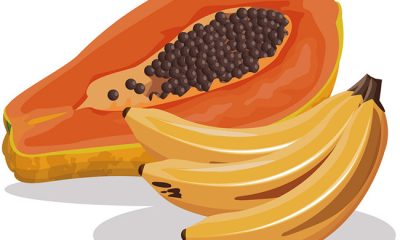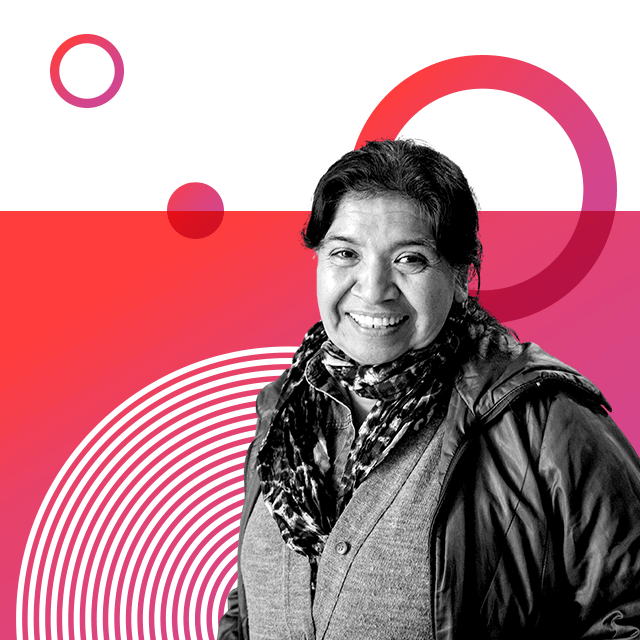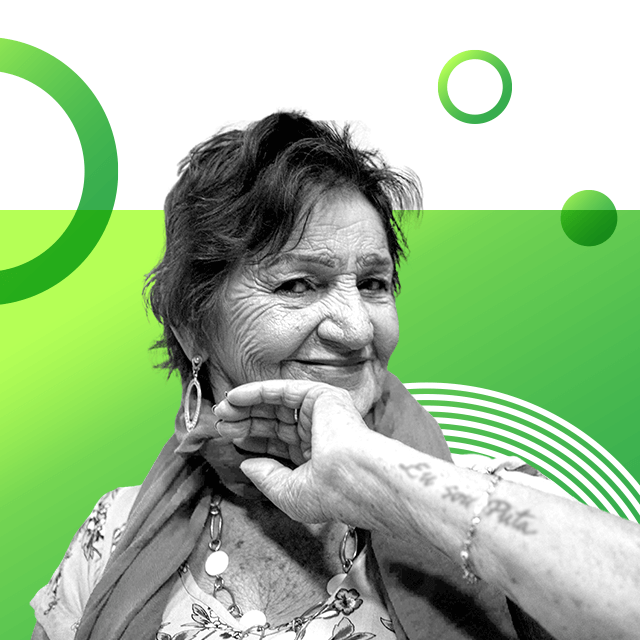Features
Benefits of Cinnamon

* Acne, Pimples, Blackheads, Blemishes:
Mix three tablespoons of honey, one tablespoon of cinnamon powder and a few drops of lemon juice.
Apply this paste on the affected areas and leave it overnight for the best results.
Wash it off with cold water.
* Dry Skin and Rough Feet:
Make a scrub by mixing lemon juice, olive oil, sea salt, almond oil, whole milk, water, honey, and cinnamon powder.
Scrub the problematic area for five to 10 minutes.
Keep the scrub on skin for a while.
Wash it off with normal water.
* Fine Lines:
Mix three to four drops of cinnamon essential oil and two tablespoons of olive oil.
Apply this pack on the areas where there are fine lines, avoiding direct contact with eyes.
After 10 to 15 minutes, wash it off with cold water.
* Boost Skin Glow:
Wash your face and pat dry it.
Mash banana and mix it well with two tablespoons of yoghurt, ½ teaspoon ground cinnamon and ½ teaspoon lemon juice.
Apply the pack evenly on your face – avoding your eyes.
Leave it for 15 minutes.
Wash off with lukewarm water.
Features
BBC 100 Women 2024: Who is on the list this year?
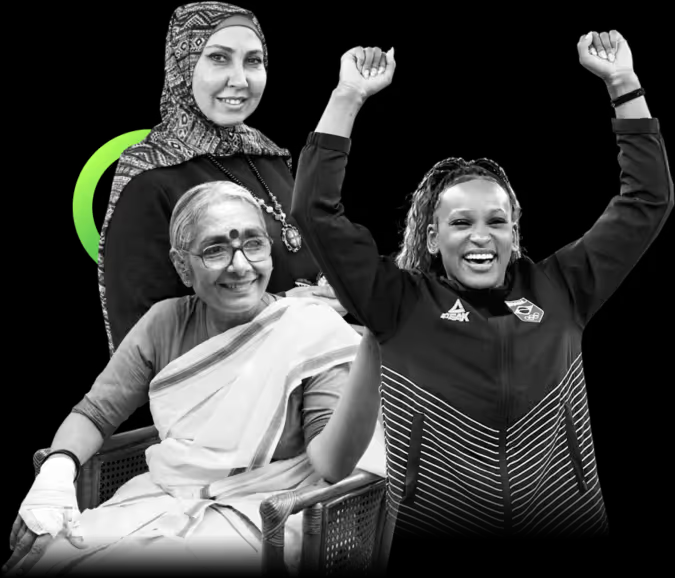
The BBC has revealed its list of 100 inspiring and influential women from around the world for 2024.
Among them are stranded astronaut Sunita Williams, rape survivor Gisèle Pelicot, actress Sharon Stone, Olympic athletes Rebeca Andrade and Allyson Felix, singer Raye, Nobel Peace Prize laureate Nadia Murad, visual artist Tracey Emin, climate campaigner Adenike Oladosu and writer Cristina Rivera Garza.
From facing deadly conflicts and humanitarian crises in Gaza, Lebanon, Ukraine and Sudan, to witnessing the polarisation in societies that followed a record number of elections around the world, women have had to dig deep and find new levels of resilience.
BBC 100 Women acknowledges the toll this year has taken on women by celebrating those who – through their resilience – are pushing for change, as the world changes around them. The list also remains committed to exploring the impact of the climate emergency, highlighting climate pioneers who work to help their communities tackle its impacts.
[Names are listed in no particular order.]
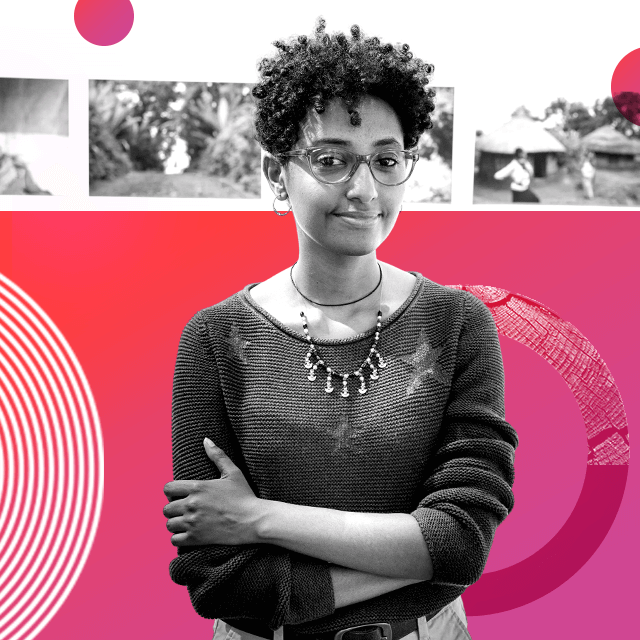
Maheder Haileselassie, Ethiopia
Photographer
Working in a landscape of dried rivers and decimated crops, Ethiopian photographer Maheder Haileselassie documents how severe drought has pushed families in her country to give their daughters up to child marriage, a subject which won her the 2023 Contemporary African Photography Prize.
Human rights organisations anticipate that the number of girls at risk of child marriage as a result of the climate crisis will increase globally by a third by 2050.
Haileselassie’s photography is informed by the history and experiences of the people she engages with every day, as well as her own.
Her work has been exhibited at many prestigious venues, including this year’s African Biennale of Photography.
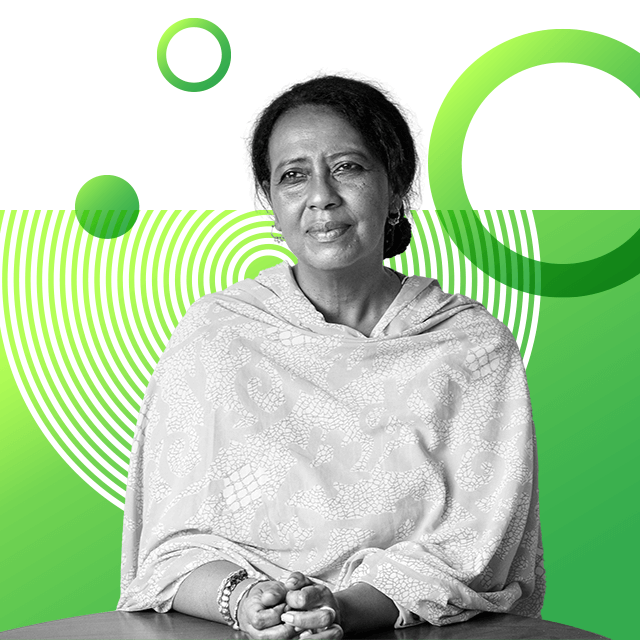
Hala Alkarib, Sudan
Activist against sexual violence in war
As regional director of the Strategic Initiative for Women in the Horn of Africa (SIHA), prominent activist and writer Hala Alkarib leads programmes that spotlight gender-based violence in the wider region.
Since war broke out in Sudan in April 2023, SIHA has been tracking conflict-related sexual violence, providing support to women and girls.
An October 2024 UN report warned of the “staggering” scale of the problem, and accused the paramilitary Rapid Support Forces (RSF) of “atrocious crimes”, accusations the RSF dismissed.
The report estimated that at least 400 survivors of conflict-related sexual violence had been referred to support as of July 2024, describing this as “the tip of the iceberg”.
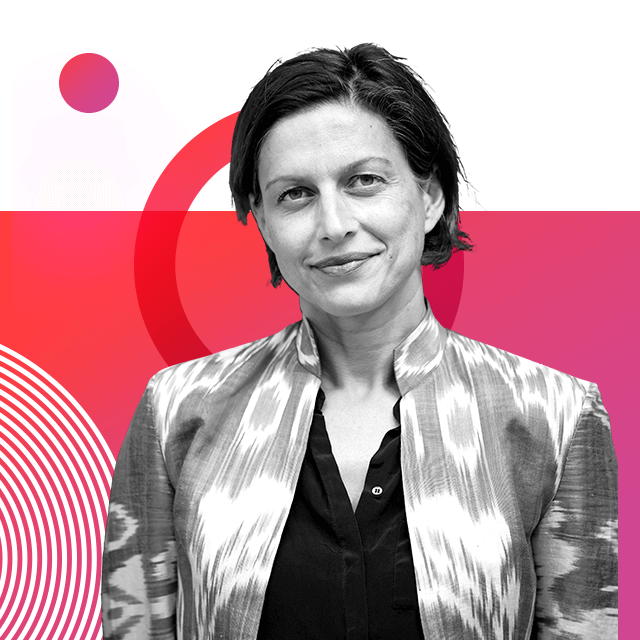
Hamida Aman, Afghanistan
Media and education entrepreneur
When Afghan girls were denied access to secondary education by the Taliban, media entrepreneur Hamida Aman decided to launch the Begum Academy, an online space offering free multimedia courses for students who were not able to attend school.
In the last year, the educational platform has provided more than 8,500 videos in Dari and Pashto, covering school curricula for grades seven to 12.
In March, Aman launched Begum TV, an educational channel broadcasting Begum Academy courses via satellite.
The service followed her Radio Begum project, a station made by women and for women, which was created after the Taliban takeover in 2021.
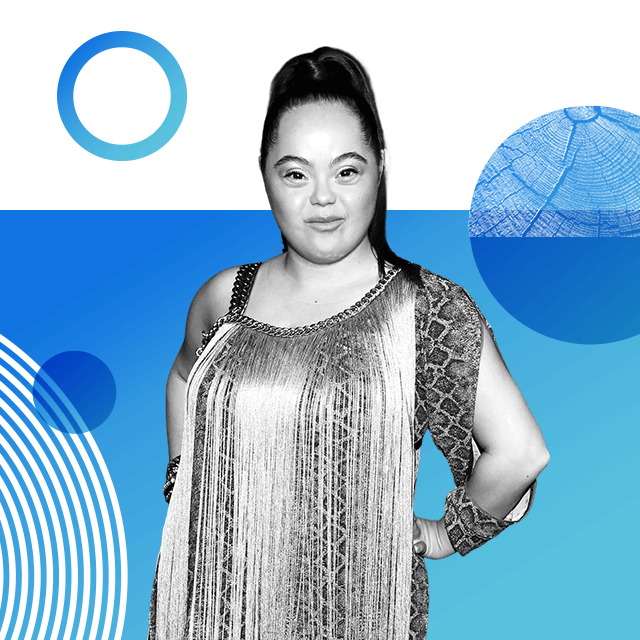
Madison Tevlin, Canada
Talk-show host and model
Starring in the campaign Assume That I Can, Madison Tevlin’s viral video took the world by storm this year, by shattering prejudices about people with Down’s syndrome.
The awareness campaign amassed more than 150m views and won awards for its positive impact, including a Gold Lion at the Cannes Lions Festival.
Actress and model Tevlin has featured in New York Fashion Week, spoken on inclusion at the Clinton Global Initiative, and received the Quincy Jones Exceptional Advocacy award.
She has hosted the award-nominated talk-show Who Do You Think I Am? and the 21 Questions podcast.
Resilience is never giving up even when I’m judged or overlooked or underestimated. It’s standing up for what I believe in and never giving up on myself or my community. -Madison Tevlin
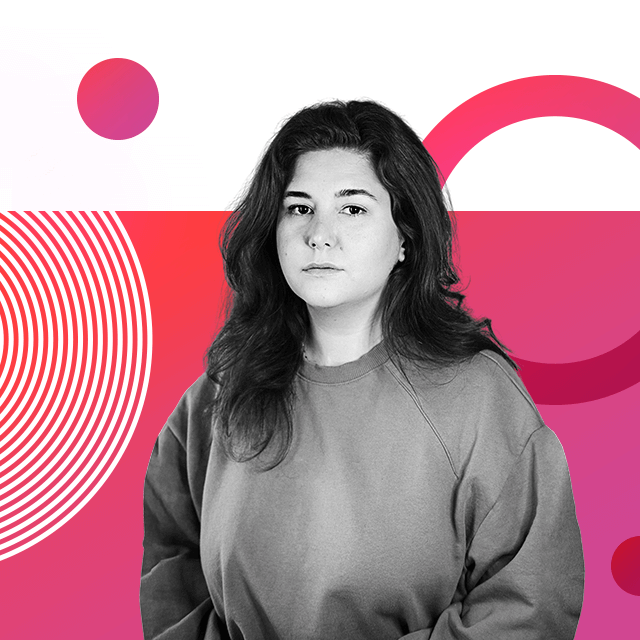
Christina Assi, Lebanon
Photojournalist
Photojournalist Christina Assi grew up in 1990s Lebanon – a time of constant instability in the aftermath of civil war – and this fuelled her drive to document conflict and cover the untold stories of war.
Her life took a tragic turn in October 2023, when she was severely injured in an Israeli strike in southern Lebanon while reporting.
The blast killed fellow journalist Issam Abdallah, five other colleagues were wounded and Assi would later have a leg amputated.
The experience led her to campaign for journalists’ safety, and she dedicated her participation in the 2024 Olympic torch relay in Paris to all the journalists who have died in the line of duty.
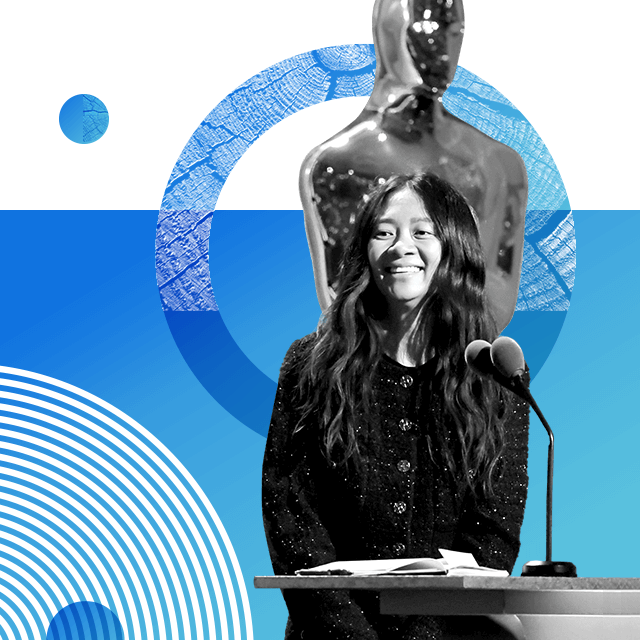
Chloé Zhao, UK
Film director
Oscar-winning film director and writer Chloé Zhao is the first woman of colour – and one of only three women in history – to receive the academy’s best director award.
Born in Beijing, Zhao moved to the UK and the US. She describes herself as a nomad – a theme her award-winning film, Nomadland (2020), celebrates.
From representing an indigenous community in her early films to directing the most diverse cast to date in the Marvel Cinematic Universe, Zhao feels passionately about what connects us as human beings.
This year she has been on set directing an adaptation of Maggie O’Farrell’s acclaimed Shakespeare-era novel Hamnet, to be released in 2025.
If we don’t change the structure of the industry we’re working in, we’re just saying that we need to be exactly like men to have value. I don’t think that’s where our power lies.- Chloé Zhao
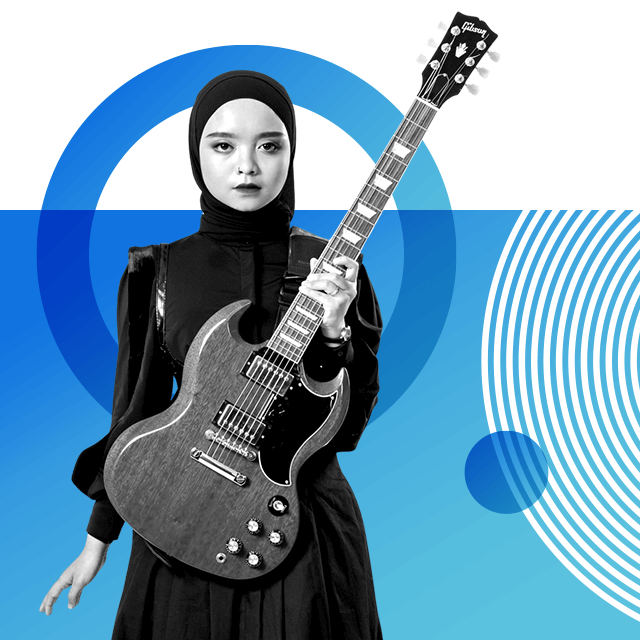
Firda Marsya Kurnia, Indonesia
Heavy metal musician
Challenging gender and religious norms is something Firda Marsya Kurnia is comfortable with, as lead vocalist and guitarist in the all-female, hijab-wearing heavy metal band Voice of Baceprot.
Singing in English and Sundanese, one of the most widely spoken languages in Indonesia, the trio’s lyrics express their frustrations with patriarchy.
There has been pushback from more conservative Muslims, who did not respond well when the band ventured into heavy metal.
But the band have come a long way since they started 10 years ago at their village school in Garut, West Java. This year they performed at Glastonbury, the first Indonesian band in the music festival’s 54-year history.

Hadiqa Kiani, Pakistan
Singer and songwriter
One of Pakistan’s musical icons, Hadiqa Kiani is known for her versatile voice and her contributions to humanitarian causes.
Rising to fame in the 1990s, she became a celebrated force in the South Asian female pop music scene, as well as a United Nations Development Programme goodwill ambassador.
In response to the devastating 2022 floods in Pakistan, Kiani launched her Vaseela-e-Raah project, dedicated to aiding victims in the regions of Balochistan and South Punjab.
She urged the public to assist displaced families and last year, the project announced it had built 370 homes and other facilities in the affected areas.

Kemi Badenoch, UK
Leader of the Conservative party
Elected leader of the Conservative Party in November, Kemi Badenoch is the first black woman to lead a major UK political party.
She is currently the Member of Parliament for North West Essex, and was previously business secretary and minister for women and equalities.
Badenoch was born in London to Nigerian parents, but grew up in Lagos, Nigeria, and in the US. She returned to the UK aged 16 due to the worsening political and economic situation in Nigeria, and took degrees in computer engineering and law.
Prior to her political career, she was an associate director of private bank Coutts and digital director of The Spectator magazine.
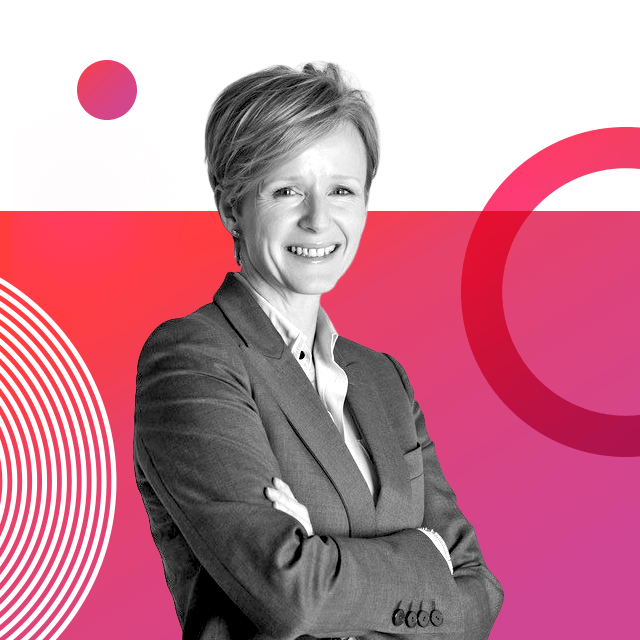
Helen Molyneux, UK
Co-founder, Monumental Welsh Women
Prior to 2021, there were no statues dedicated to named Welsh women in Wales.
In response, lawyer Helen Molyneux co-founded Monumental Welsh Women, a non-profit organisation that aims to improve public representation of Welsh women and celebrate their contributions and achievements.
Based on suggestions from members of the public, Molyneux and her team planned to erect a total of five statues of women, to ensure their stories are not forgotten.
The group have so far put up four – the first was Wales’ first black headteacher Betty Campbell in Cardiff, followed by writer Elaine Morgan in Mountain Ash, poet Cranogwen in Llangrannog, and suffragette Lady Rhondda in Newport.
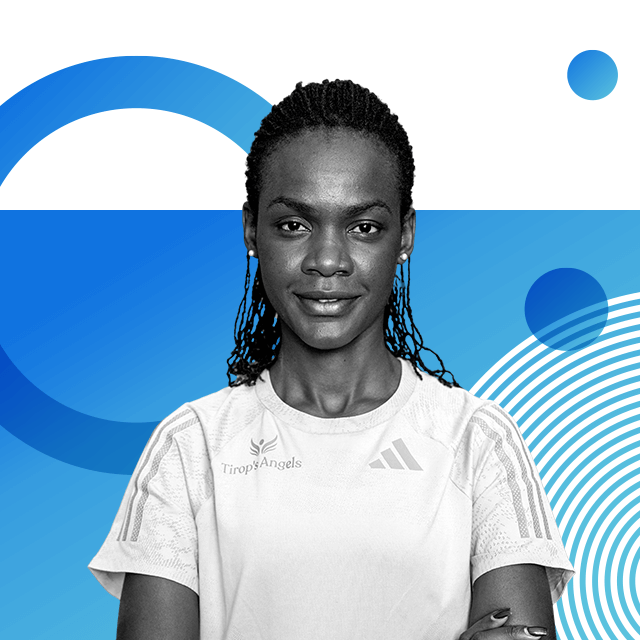
Joan Chelimo Melly, Kenya/Romania
Long-distance runner
Celebrated for her achievements in long-distance running, Kenyan-born Romanian Olympian Joan Chelimo Melly won silver at the European Championships half marathon this year.
Beyond sport, she is a survivor of gender-based violence and seeks to use her personal experience to highlight the threats that athletes often face.
She co-founded Tirop’s Angels, an organisation of Kenyan athletes formed after the killing of her fellow runner and world record-holder Agnes Tirop in 2021, which campaigns against gender-based violence through a wide range of activities.
This year the murder of Olympic runner Rebecca Cheptegei by her former partner reignited calls for action against femicide in Kenya.
I believe that real change begins when we decide that our pain is not the end of our story, but the beginning of something greater.-Joan Chelimo Melly
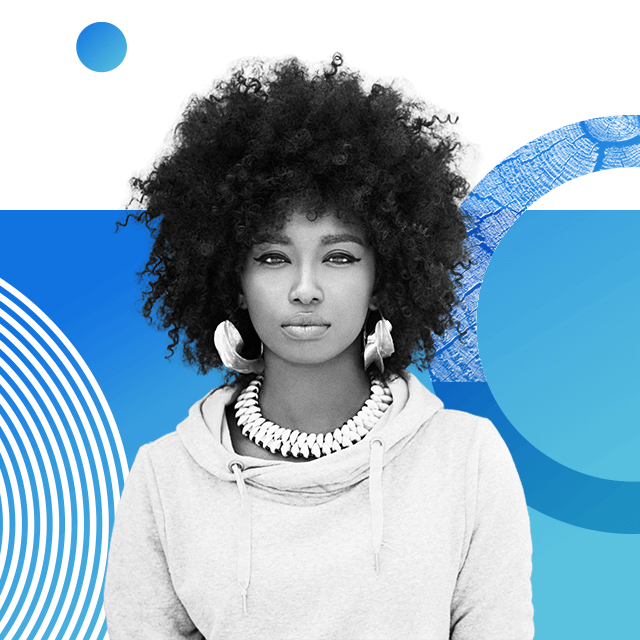
Inna Modja, Mali
Artist and climate advocate
Climate justice advocate, musician and film-maker Inna Modja is a woman taking on many challenges – from campaigning against female genital mutilation to championing sustainability.
She produced and starred in The Great Green Wall, a documentary highlighting Africa’s ambitious efforts to control desert expansion and restore degraded lands in the Sahel, an area directly south of the Sahara Desert stretching from east to west across 12 countries.
As a goodwill ambassador for the UN’s Convention to Combat Desertification, Modja amplifies the voices of communities impacted by climate change.
She is also the co-founder of Code Green, a non-profit organisation that blends innovative tech and gaming to inspire positive action.
Resilience is about fostering the ability for women and girls to lead transformative solutions.- Inna Modja
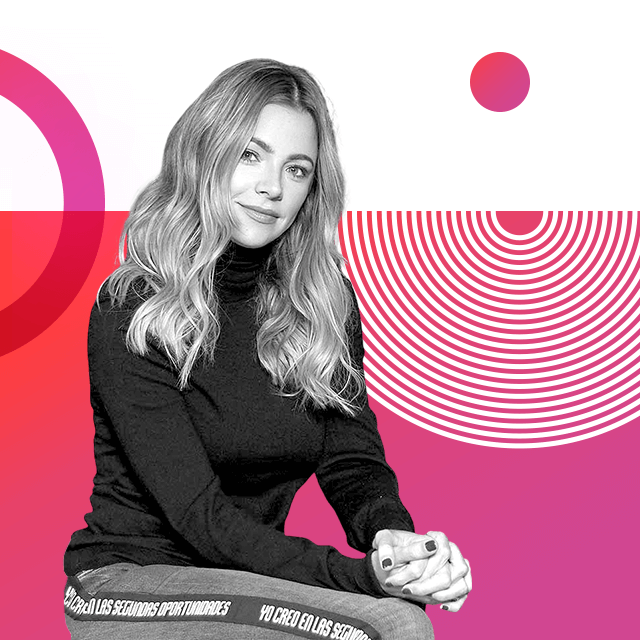
Johana Bahamón, Colombia
Social activist
A visit to a Colombian prison transformed the life of actress Johana Bahamón, inspiring her to work for those who needed a “second chance”.
In 2012, she shifted her career from acting to advocating prison reform and founded Fundación Acción Interna, a non-profit organisation that supports Colombia’s prison population and those who have been released.
The foundation is reported to have reached more than 150,000 people and 132 detention centres across the country.
The social activist was also the promoter of the 2022 Second Opportunities Law, known as the Johana Bahamón bill, which established economic incentives to strengthen access to employment and training for people after prison.
Being resilient goes beyond getting up and moving forward after a difficulty; it is making the decision to transform it into an opportunity for personal growth.
Johana Bahamón

Hana-Rawhiti Maipi-Clarke, New Zealand
Politician
At 22 years old, Hana-Rawhiti Maipi-Clarke became the youngest Māori woman ever elected to New Zealand’s parliament.
During her maiden speech, she famously performed the haka, a Māori ceremonial dance, and called for increased representation of indigenous voices. She recently led another haka that brought parliament to a halt to protest against a controversial bill.
Maipi-Clarke is a passionate advocate for Māori rights, cultural preservation, and environmental issues. At 17, she published her first book, about the Māori lunar calendar.
This year she received the prestigious One Young World Politician of the Year award for her efforts to amplify young indigenous voices in politics.
Women have to kick down the doors to places they know they are not invited to, whether that is on a local, national or global level within politics.
Hana-Rawhiti Maipi-Clarke
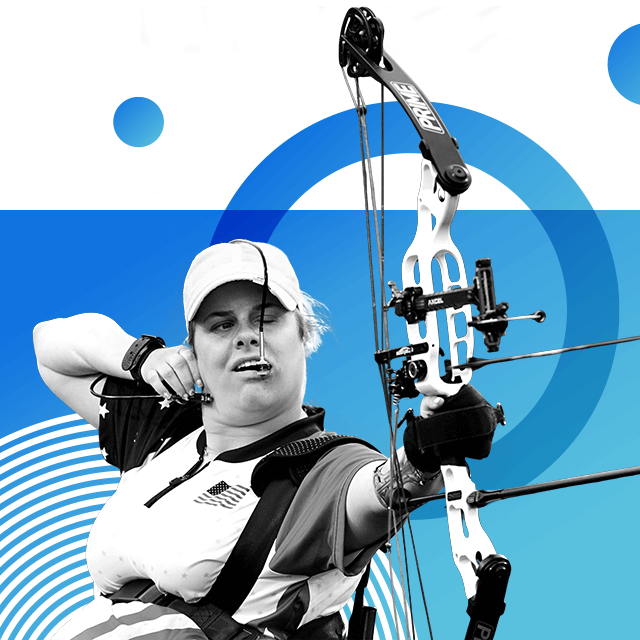
Tracy Otto, US
Archer
Attacked at home by her ex-boyfriend in 2019, Tracy Otto was left paralysed from the chest down and lost her left eye. Formerly an aspiring fitness model, she was determined to get back to being active.
In March 2021, Otto picked up a sport she had never tried before – archery. She hit the target with the first arrow she ever shot, and was hooked.
This year, she competed in Paris, her first Paralympic Games. Due to her disabilities, she uses her mouth to release arrows.
Nearly five years on, Otto also uses her experience as an advocate for survivors of domestic violence.

Idania del Río, Cuba
Fashion entrepreneur
Clandestina, co-founded by graphic designer Idania Del Río, is the first independent fashion brand from Cuba to sell its clothes online to a worldwide market.
The company was born when President Raúl Castro relaxed regulations for independent businesses and trade.
Made by a majority-female team of designers based in Havana, the products celebrate Cuban culture and aim to encourage an appreciation for the island’s creativity. Del Río incorporates upcycling into the company’s production chain and focuses on sustainable practices.
A graduate of the Havana Institute of Design (ISDI), she designed posters for galleries, theatres and festivals before starting her fashion business.
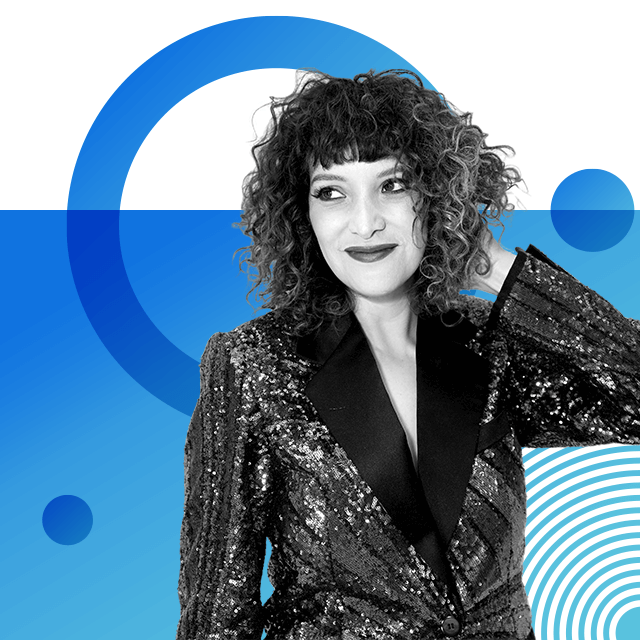
Gaby Moreno, Guatemala
Latin-pop musician
An acclaimed singer-songwriter in the Latin music scene, Guatemalan Gaby Moreno broke into the mainstream by winning the Grammy for Best Latin Pop Album in 2024.
Composed in two languages and taking influences from Americana, soul and Latin folk, her music and her emotive voice reflect her rich cultural heritage.
Moreno is also the first Guatemalan to become a Unicef goodwill ambassador, advocating children’s rights.
She recently launched a campaign to increase access to quality educational kits, in a country where 2.7m boys and girls are estimated to be outside the school system.

Naomi Watanabe, Japan
Comedian
As one of Japan’s most famous influencers, Naomi Watanabe has paved the way for a new generation of women comedians in her country.
She has broken down barriers in male-dominated Japanese comedy, starring as a female main character and creating hit sketch shows.
Watanabe is also helping to change body stereotypes in Japan, spearheading a body-positive movement known as pochakawaii, which translates to “chubby and cute”. She launched one of Japan’s first brands to offer plus-size clothing.
After achieving great success in Japanese TV and film, she has now moved to the US to break on to the global comedy stage.
How do you stay resilient? I always think, ‘You don’t like me, that’s okay. Please give me a year and maybe I’ll change your mind.’ This is the mindset I always have. -Naomi Watanabe
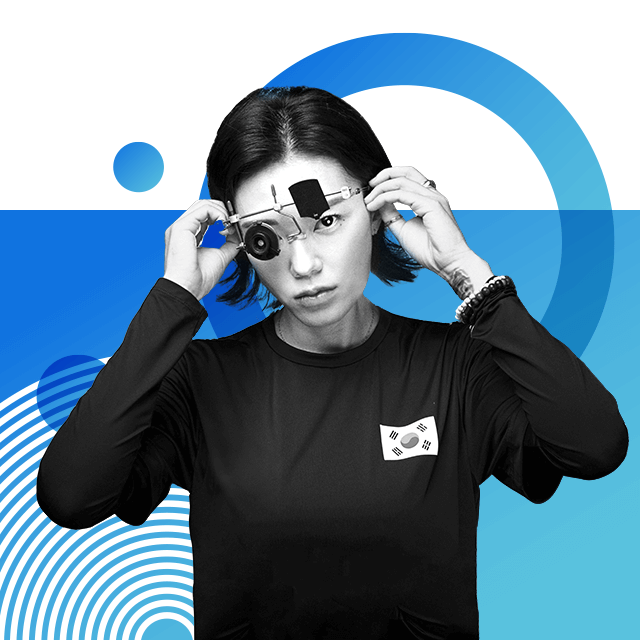
Kim Yeji, South Korea
Olympic shooter
Charisma and sporting achievements brought Kim Yeji to the world’s attention this year.
The pistol shooter won silver in the women’s 10m air pistol at her first Olympics in July, having set the women’s 25m pistol world record only a few months earlier.
Videos of her soon went viral on social media, praising not only her skills, but also her ice cool demeanour, unbreakable concentration and sci-fi-inspired look with bespoke glasses to help with precision.
Kim Yeji has spoken openly about how she sees the responsibilities that come with motherhood. She is taking a break from the sport to spend time with her six-year-old daughter.
Through sports, we demonstrate resilience, teamwork, and determination – values that, in my opinion, extend far beyond the playing field to inspire broader societal change. – Kim Yeji

Olivia McVeigh, UK
Make-up artist
After being diagnosed with alopecia, Olivia McVeigh began to explore the world of wigs. Trying out new styles and experimenting with alternative hair, she built an online platform to encourage and empower women facing hair loss.
With nearly half a million followers, she normalises wig-wearing along with raising awareness for alopecia and women’s health.
McVeigh, a make-up artist and influencer from Northern Ireland, began losing her hair in her teens.
She now holds wig workshops and shares the journey towards finding confidence again, creating a safe space for women with alopecia to come together and normalise the conversation around the condition.
Resilience is the crown that we women wear. We are forever able to adapt, transform and learn to thrive in our surroundings, no matter the circumstances. – Olivia McVeigh
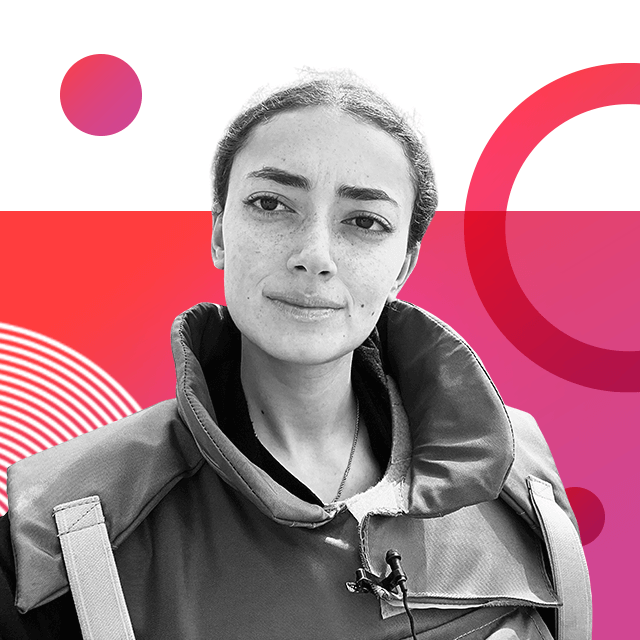
Plestia Alaqad, Palestinian Territories
Journalist and poet
Twenty-two-year-old Plestia Alaqad had recently graduated from university when the war in Gaza began. In the earliest days of the war, she posted a video of herself in her apartment during intense Israeli airstrikes.
It went viral, and she amassed four million followers on Instagram with subsequent Gaza updates, poems and diary entries. Her memoir based on these reports, Eyes of Gaza, will be published soon.
Alaqad is One Young World’s Journalist of the Year 2024. She has also campaigned for Palestinians at high-profile forums like the World Government Summit.
Alaqad left Gaza in November 2023. She has been awarded a scholarship for a master’s in media studies in Beirut.
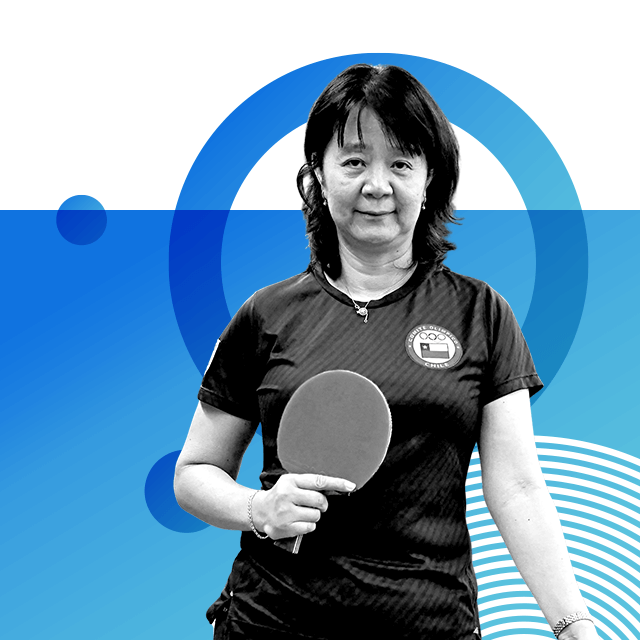
Zhiying (Tania) Zeng, Chile
Table tennis player
Chinese-Chilean table tennis player Zhiying Zeng – or Tania – made her Olympic debut at the 2024 Paris games at 58 years old.
It had been a long time coming: with her mother as a coach, she turned professional at the tender age of 12. She qualified for the Chinese national team but later moved to Chile, where she abandoned the sport for 30 years to focus on her businesses.
The Covid-19 pandemic saw Tania Zeng get back into table tennis.
By 2023 she was the highest-ranked woman in the sport in Chile, representing the country in the South American Championship and Pan American Games before accomplishing her “lifelong dream” of Olympic qualification.
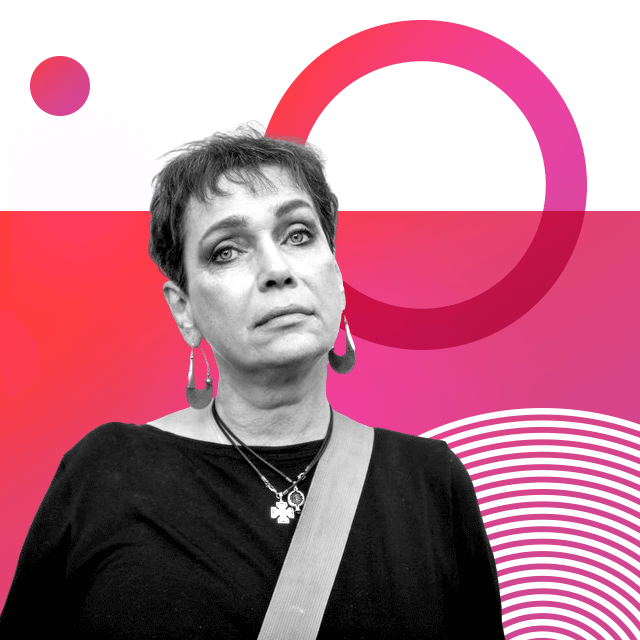
Svetlana Anokhina, Russia
Human rights campaigner
Svetlana Anokhina has spent years helping victims of domestic violence escape from Russia’s North Caucasus, a Muslim-majority region straddling Eastern Europe and Asia.
Along with other volunteers, she founded the Marem project in 2020. The initiative helps women at risk from Dagestan, Chechnya and other North Caucasus republics organise evacuations and find temporary accommodation, as well as providing them with legal and psychological support.
Anokhina herself decided to leave Russia in 2021, after Chechen and Dagestani security forces raided her women’s shelter.
Last year, the authorities opened a criminal investigation against her on charges of discrediting the Russian Armed Forces.

Tracey Emin, UK
Artist
In the 1990s, Tracey Emin rose to prominence for provocative pieces such as My Bed and Everyone I Have Ever Slept With 1963-1995, also known as The Tent, which invite people to reflect on their sexual experiences.
She has since become an instantly recognisable name in the art world, celebrated for her confessional and autobiographical style.
It’s now 25 years since My Bed was first exhibited in London, sparking much media debate. Once portrayed as the enfant terrible of British art, this year Emin has been made a dame for her contributions to the visual arts.
The artist has set up the Tracey Emin Foundation in Margate, UK, to nurture upcoming talent.
Being a woman right now, I think we need as much resilience as we can have. I think now is a time when there has to be greater unity and a greater fight for women. -Tracey Emin
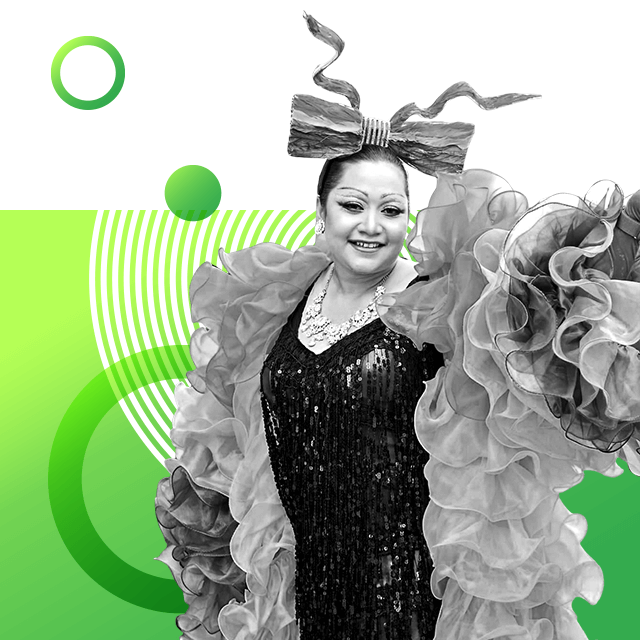
Ann Chumaporn (Waaddao), Thailand
LGBTQ+ rights campaigner
As Thailand signed a marriage equality bill into law this year and became the first country in South East Asia to recognise same-sex unions, Ann “Waaddao” Chumaporn had reasons to celebrate.
She had spearheaded efforts to get the bill through parliament, serving as a legal review commissioner in both the House of Representatives and the Senate.
A co-founder of Bangkok Pride and a queer lesbian activist from rural southern Thailand, Chumaporn has been advocating human rights and LGBTQ+ family rights for more than a decade.
During Thailand’s 2020 youth protests, she emerged as a leader in the pro-democracy Feminist’s Liberation Front: she faced eight political charges for her activism.
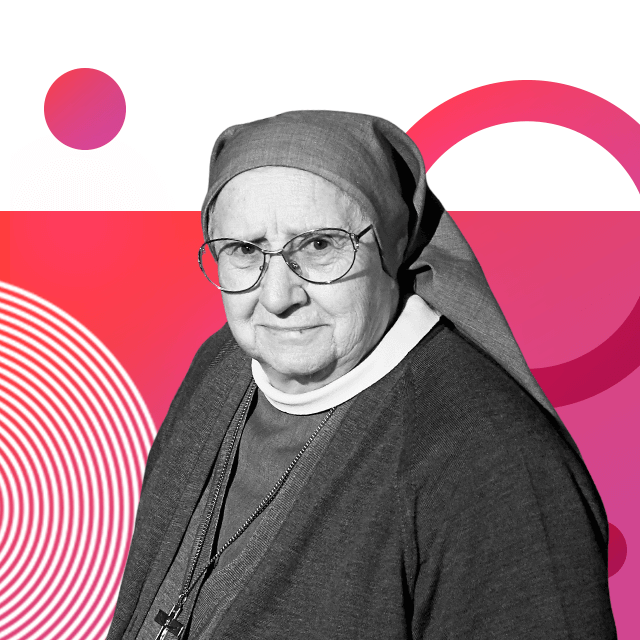
Eugenia Bonetti, Italy
Nun
Sister Eugenia Bonetti has helped manage more than 100 shelters and establish a network with nuns in Africa to support migrant women victims of human trafficking and exploitation.
She spent many nights assisting women who had been forced into the sex trade in Rome and became the president of Slaves No More, an organisation that raised awareness of human trafficking.
Bonetti was a missionary in Kenya for more than 24 years and helped train officials in various countries to develop anti-trafficking initiatives.
Before retiring, she was asked by Pope Francis to write the 2019 Way of the Cross, a key annual devotion for Catholics marking Good Friday at the Colosseum.
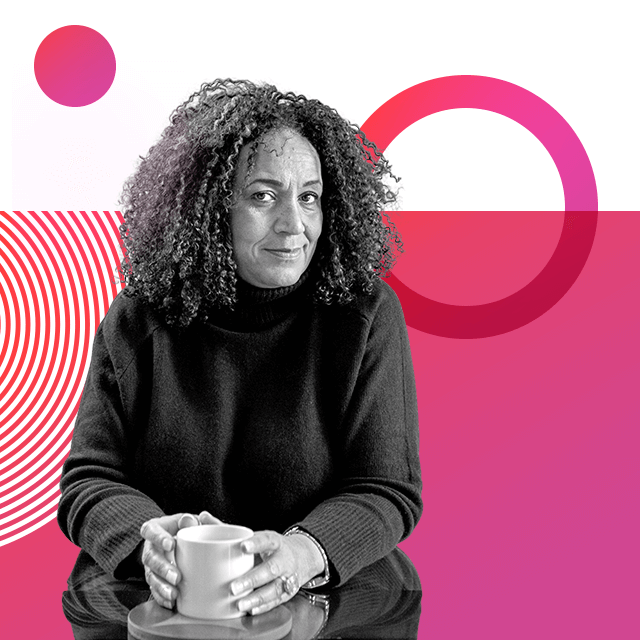
Lesley Lokko, Ghana/UK
Architect
Her work “to democratise architecture” has earned Lesley Lokko the Royal Institute of British Architects’ 2024 gold medal – one of the world’s highest honours in her field – making her the first black woman to receive the award since the institute’s founding in 1848.
She has championed bringing people of under-represented backgrounds into the industry over the past two decades.
The Ghanaian-Scottish academic also became the first woman of African descent to curate the Venice Biennale of Architecture, where she focused on the themes of decarbonisation and decolonisation.
She is the founder of the African Futures Institute in Accra, which explores the relationship between architecture, identity and race.
Resilience is the capacity to stay the course over the long-haul – even in the face of indifference, which is often harder to endure than opposition. – Lesley Lokko

Raye, UK
Singer
Singer-songwriter Raye made history at this year’s Brit Awards, winning six of the seven prizes she was nominated for. She also became first woman to win songwriter of the year.
In 2021, Raye shared on social media that she had been in a seven-year battle with her record label Polydor to release her own album.
She presented her debut studio album My 21st Century Blues as an independent artist in 2023, to critical and commercial success.
She has spoken openly about the struggles she has faced both in the music industry and outside, including sexual assault, drug abuse, and body dysmorphia, and has called for fairer pay for songwriters.
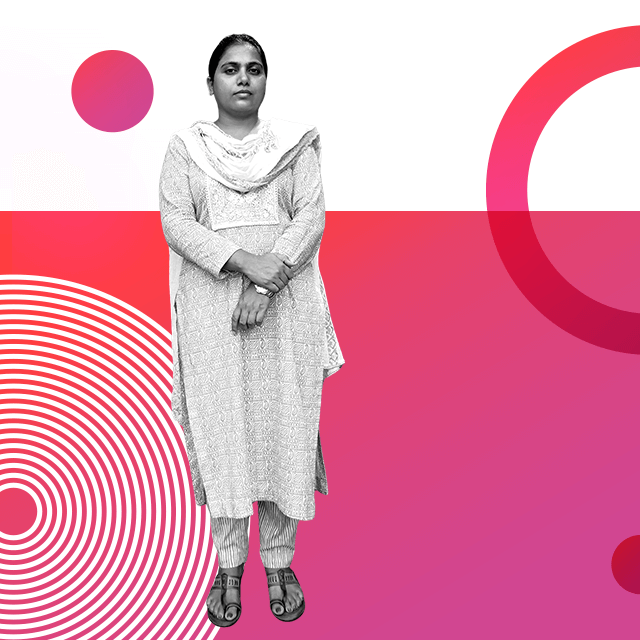
Pooja Sharma, India
Performer of funerary rites
For the past three years, Pooja Sharma has been performing the last rites for unclaimed dead bodies in Delhi.
Her motivation comes from personal experience, having first performed the final rites for her brother after he was killed and nobody came to help with his funeral.
Sharma faced resistance from priests and her wider community, because this role is traditionally held by men in the Hindu religion.
Despite the backlash, she has performed funerary rites for more than 4,000 people from different faiths and religions, sharing her work on social media and championing the cause to give everyone the dignity they deserve in death.

Ruth López, El Salvador
Lawyer
Passionate about law and justice, Ruth López is chief legal officer at Cristosal, an organisation that works to advance democracy across Central America.
She has been focusing on anti-corruption, electoral law and the protection of human rights in El Salvador.
A vocal critic of the country’s government and institutions, she has campaigned widely on social media to promote political transparency and public accountability supervised by citizens themselves.
Her work has become more prominent as, earlier this year, El Salvador re-elected president Nayib Bukele for a second term in office. Bukele, who saw his popularity soar following a crackdown on crime, has described himself as “the world’s coolest dictator”.
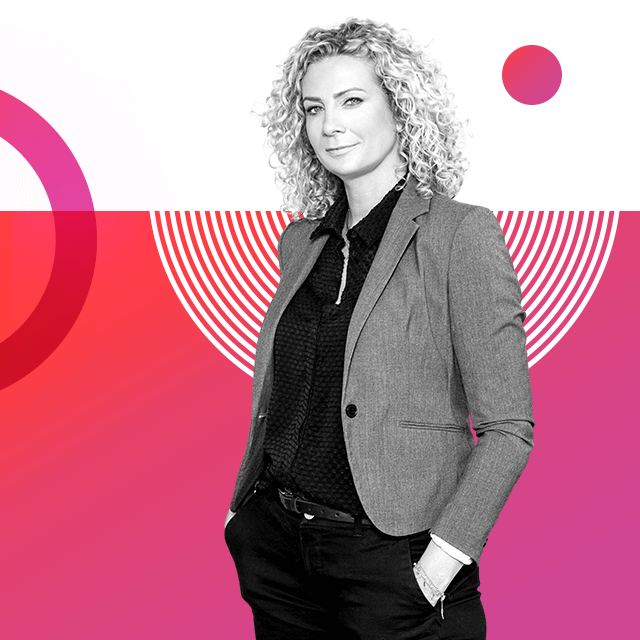
Linda Dröfn Gunnarsdóttir, Iceland
Women’s shelter manager
At the Icelandic Women’s Shelter, Linda Dröfn Gunnarsdóttir helps those who are forced to leave their homes due to domestic violence.
Iceland is a country that often tops the rankings as the “best place to be a woman”, but where gender-based violence rates remain persistently high.
As the centre’s general manager, she leads the project to open a new space that would be Iceland’s first purpose-built shelter for women.
Gunnarsdóttir says that 20 years ago, 64% of women who stayed at the shelter eventually went back to their abusers, but that figure is now down to 11% as a result of improved support and services.
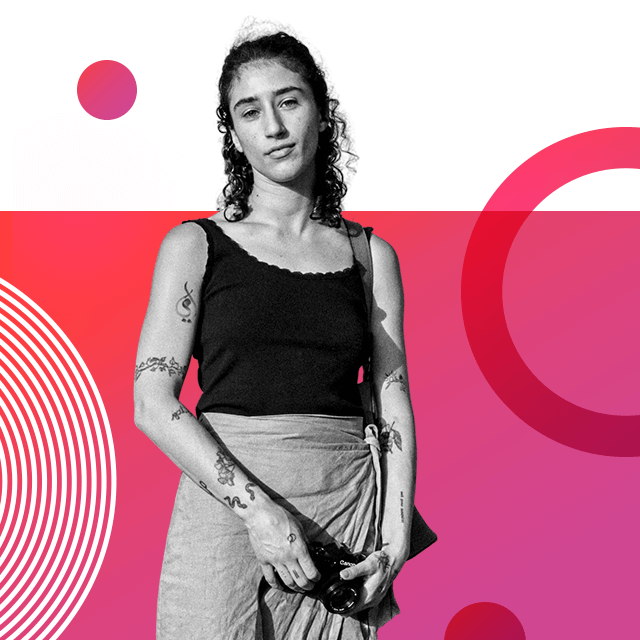
Yasmeen Mjalli, Palestinian Territories
Designer
Fashion designer Yasmeen Mjalli’s creations are inspired by Palestinian life and traditions.
After growing up in the American South, she relocated to Ramallah in the occupied West Bank, where she launched her brand Nöl Collective in 2020.
Her fashion label works with family-run sewing workshops, local spice shops that provide natural dye agents, and women’s co-operatives to produce garments collectively. The tailors, weavers, embroiderers and carvers use traditional techniques, paying homage to the Palestinian craft of creating fabrics.
Mjalli has used her garments to tell stories about Palestinians. She has also addressed the street harassment experienced by women globally, painting the phrase “not your habibti” (not your baby) on denim jackets and T-shirts.
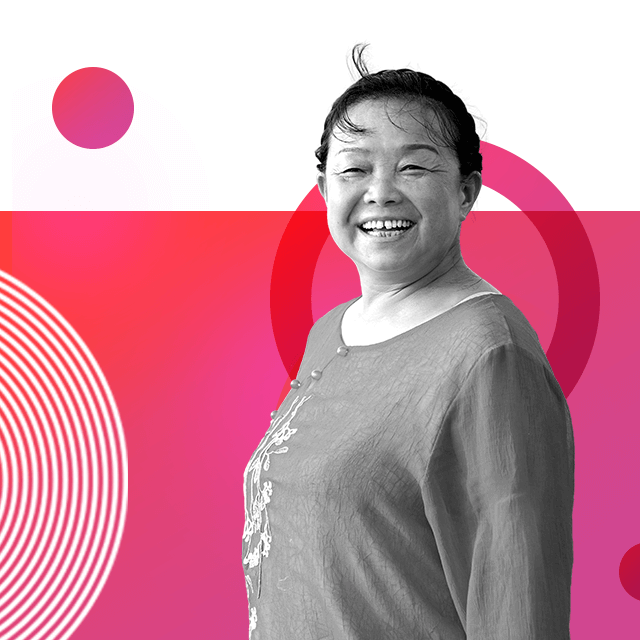
Su Min, China
Road tripper and influencer
At the age of 56 and escaping an abusive marriage, Su Min set off on a solo road trip around China, with just her car, a tent and her pension.
Her trip has taken her to more than 100 cities and 20 provinces since she started driving in 2020.
She has documented her entire journey and her story has ignited heated discussions on social media, as she inspired other middle-aged women, often referred to as “aunties” in society, by daring to go against the status quo.
She now has six million followers across her social media platforms and her life has been turned into a film – Like a Rolling Stone – released this year.
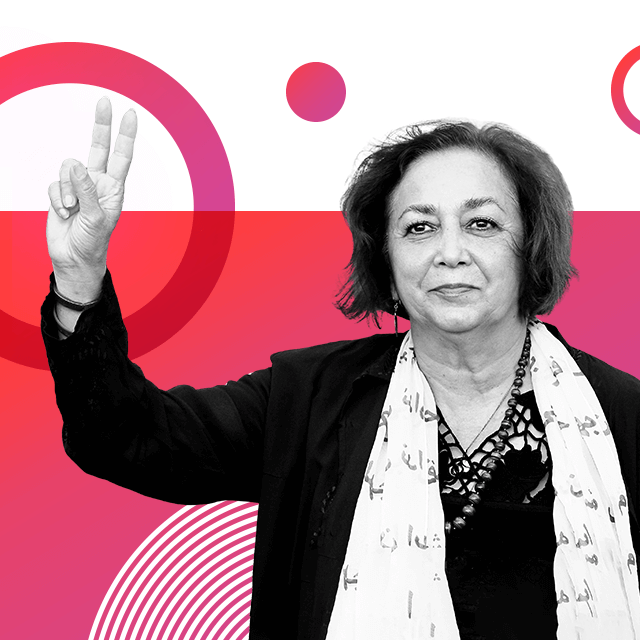
Shahrnush Parsipur, Iran/US
Writer and translator
One of Iran’s most prominent novelists, Shahrnush Parsipur has addressed taboo issues in her work, such as female sexual oppression and rebellion in a patriarchal society.
She began her career as a writer of fiction and producer on Iranian National Television and Radio, but resigned in protest at the execution of two poet activists before the revolution of 1979. This resulted in her first imprisonment.
Since the revolution, her work has been banned extensively in Iran and Parsipur was imprisoned again for openly referring to issues around virginity in her novel Women Without Men. This was later adapted into a feature film outside Iran.
Parsipur has recounted her experience of incarceration in her writing, and has lived in exile in the US since 1994.
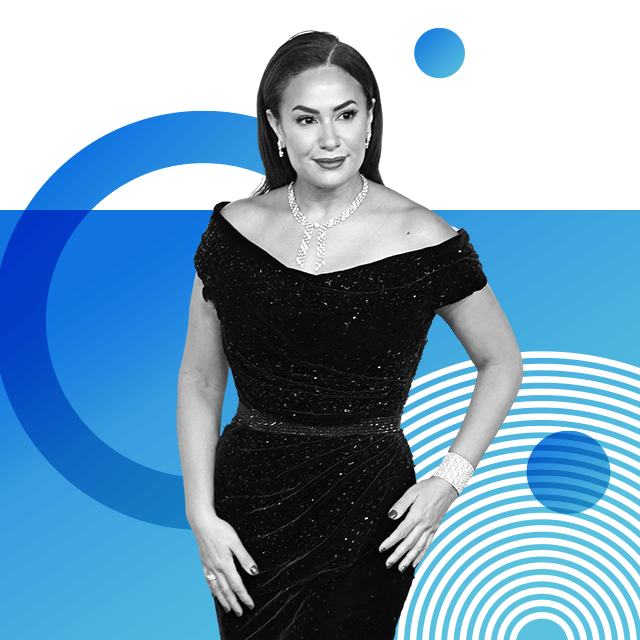
Hend Sabry, Tunisia
Actress
Actress Hend Sabry is one of the most famous women in Arab cinema. Her breakout role in the feminist film The Silences of the Palace (1994) explored the sexual and social exploitation faced by women in Tunisia.
She became the first Arab woman to serve as a judge at the Venice Film Festival in 2019.
More recently she starred in the film Four Daughters, which was selected as Tunisia’s entry for the Oscars in 2024 and was nominated for Best Documentary Feature.
In November, Sabry resigned as a goodwill ambassador for the UN, in protest at what she called the use of starvation as a weapon of war in Gaza.
It’s not just about surviving; it’s about rebuilding and finding purpose through the struggle… transforming pain into action. – Hend Sabry
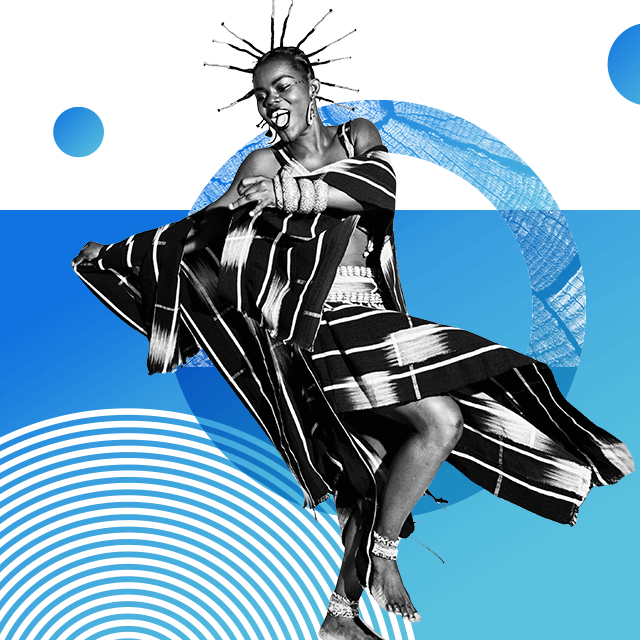
Noella Wiyaala Nwadei, Ghana
Afro-pop musician
Singer and songwriter Noella Wiyaala Nwadei is popularly known by her stage name Wiyaala, which means “the doer” in her Sissala language.
Recognised for her sense of fashion and unique style, the artist designs her stage dresses and accessories to showcase the traditions of her home region, in northern Ghana.
Many of her lyrics shed light on the exploitation of African women. Wiyaala has worked closely with UN agencies and the Ghanaian authorities to combat child marriage.
She has also built an arts centre, community radio station and restaurant to promote employment and creativity in her hometown of Funsi.
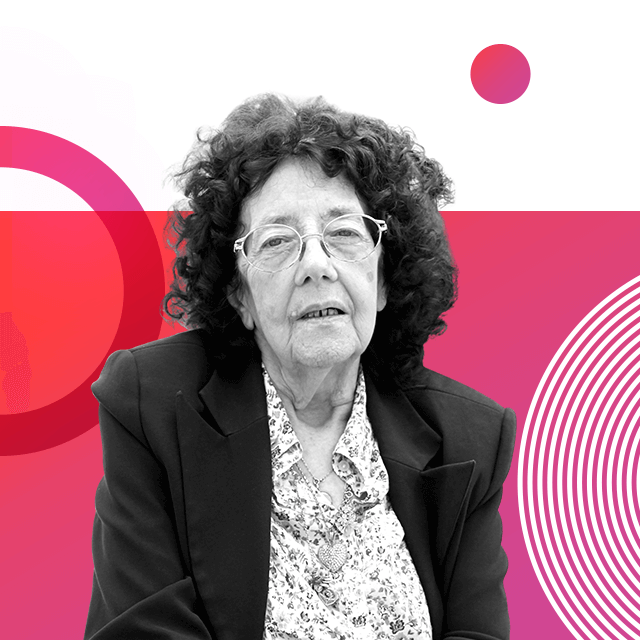
Maria Teresa Horta, Portugal
Poet
Writer and journalist Maria Teresa Horta is one of Portugal’s most prominent feminists and author of many award-winning books, but she is perhaps best known as co-author of the internationally acclaimed Novas Cartas Portuguesas (New Portuguese Letters), written with Maria Isabel Barreno and Maria Velho da Costa.
The collection of fiction, poetry, and erotica was quickly banned in 1972 by Portugal’s authoritarian government and Horta and her fellow co-authors stood trial for obscenity and “abusing the freedom of the press”.
The case of the Three Marias, as they became known, made headlines and inspired protests worldwide.
Their trial ended after the 1974 Carnation Revolution brought down the regime – and this year marks the 50th anniversary of that historic moment.
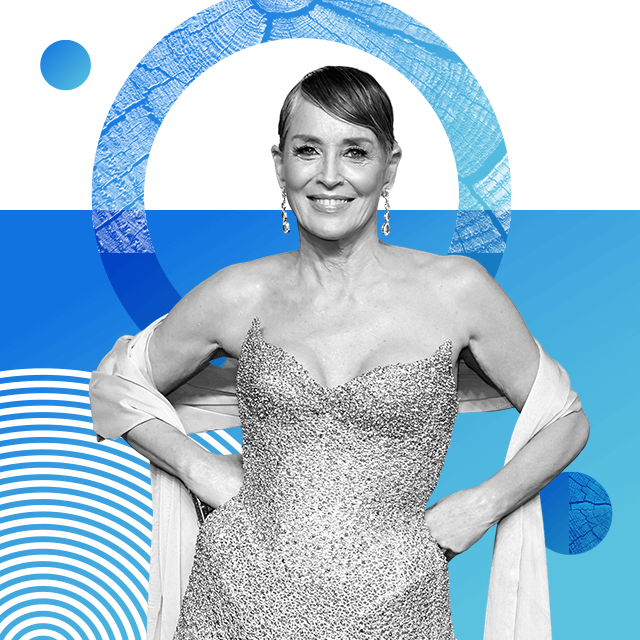
Sharon Stone, US
Actress
Hollywood star Sharon Stone has made a mark both on and off screen over the past three decades.
The actress shot to fame in the early 1990s with the hit movie Basic Instinct, and starred in blockbusters such as Total Recall and Casino, for which she won a Golden Globe and was nominated for an Oscar.
Alongside her prolific acting career, Stone has carried out philanthropic work backing many causes, and she was recognised by Nobel Laureates with a Peace Summit Award for her activities in support of people with HIV.
Earlier this year, her achievements were further celebrated with the inaugural Golden Globe International Icon Award.
Resilience is a choice. You have to choose your flow. You either choose to get wound up or choose joy. – Sharon Stone
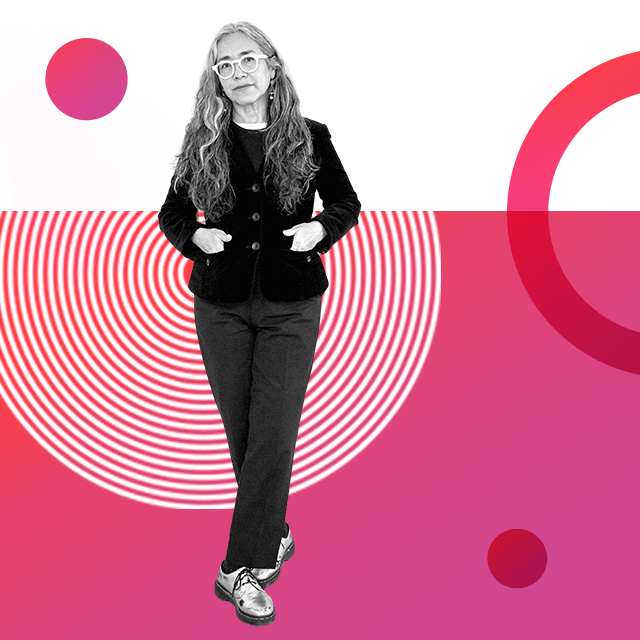
Cristina Rivera Garza, Mexico/US
Writer
Prolific author Cristina Rivera Garza has been recognised with many awards over the years, including the 2024 Pulitzer Prize in the memoir category for her book Liliana’s Invincible Summer, which shines a light on the issue of femicide.
Through the story of her sister Liliana – murdered in 1990s Mexico by a former boyfriend who fled and was never brought to trial – the writer confronts the trauma of losing a loved-one and embarks on a quest for justice in a country with one of the highest femicide rates in the world.
Rivera Garza is also the founder and chair of the PhD programme in creative writing in Spanish at the University of Houston.
Messing with language continuously and thoroughly so that language may finally convey women’s side of the story may well lay the foundation for any kind of resilience. -Cristina Rivera Garza
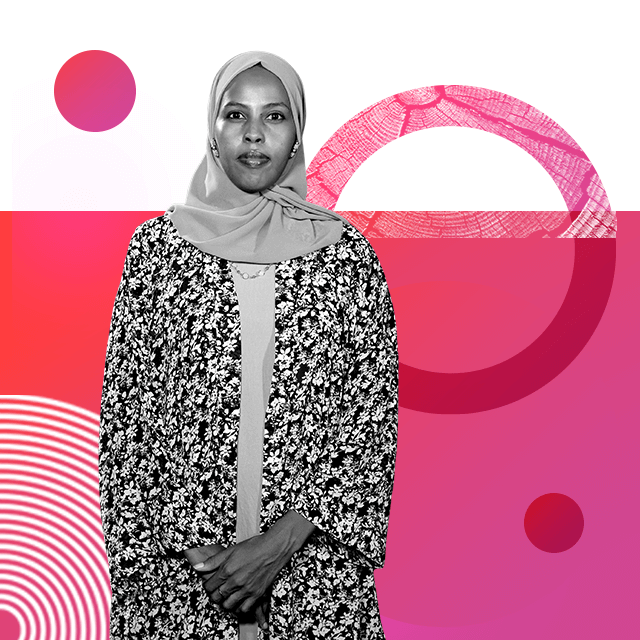
Hinda Abdi Mohamoud, Somalia
Journalist
A keen writer from a young age, Hinda Abdi Mohamoud kept a diary with stories about people fleeing violence in Jigjiga town, to Hargeisa.
Now she is the chief editor of Bilan, the country’s first and only all-women media team.
The team was formed to combat the high rates of sexism and harassment which Somali women face in the workplace – challenges recognised in a recent UN report.
Bilan aims to shine a light on social issues in one of the most dangerous countries in the world for journalists, covering stories such as Somalis living in hiding with HIV, abused orphans, and people with albinism shunned by their communities.
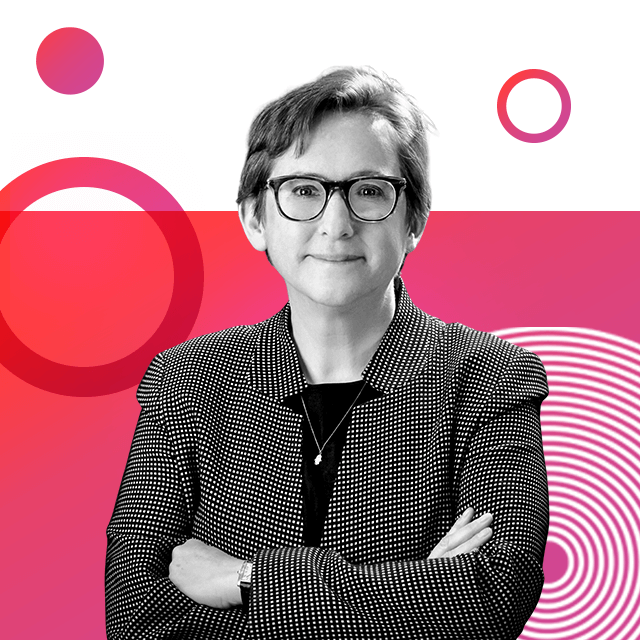
Sharon Kleinbaum, US
Rabbi
A pioneer within the Jewish community in New York, rabbi Sharon Kleinbaum has spent three decades inspiring change at the intersection of LGBTQ+ rights and religion.
Appointed in 1992 as the first female rabbi of the city’s Congregation Beit Simchat Torah, she has led the community through ups and downs – including the Aids crisis in the 1990s.
She oversaw an expansion of the congregation’s membership to include trans and non-binary people, and it is now believed to be the largest LGBTQ+ friendly synagogue in the US.
Kleinbaum, who retired this year, has been the leading force behind social justice projects and was appointed to the US Commission on International Religious Freedom by President Joe Biden.
Joy is an act of spiritual and political resistance. – Sharon Kleinbaum
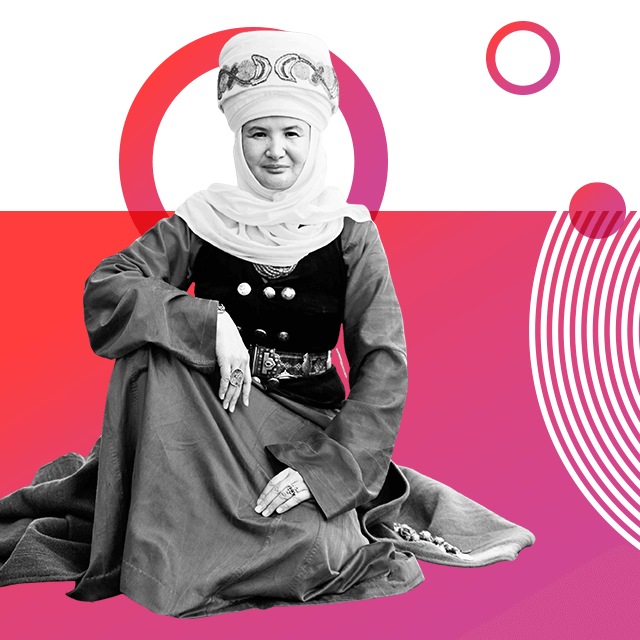
Zhanylsynzat Turganbaeva, Kyrgyzstan
Museum manager
Preserving and revitalising Kyrgyzstan’s cultural heritage is a priority for Zhanylsynzat Turganbaeva.
She runs an ethnological museum in Bishkek, which features unique national artefacts and attracts large numbers of visitors.
Part of her philanthropic work involves the preservation of Kyrgyz literature, including the Epic of Manas, which tells the story of a warrior who is said to have united the 40 tribes of the Kyrgyz region.
One version of the Unesco-listed monumental poem consists of about 500,000 lines of verse and is arguably the longest epic in the world (20 times longer than Homer’s Odyssey). Turganbaeva’s work creates opportunities and resources for “manaschis”, entertainers who recite this Kyrgyz classic.

Rebeca Andrade, Brazil
Gymnast
Gymnast Rebeca Andrade’s total of six medals makes her Brazil’s most decorated Olympian (she also has nine world titles).
She won gold in the floor exercise in Paris 2024, beating the world’s most decorated gymnast Simone Biles. During the medal ceremony, Biles and fellow US gymnast Jordan Chiles bowed to the Brazilian, a gesture that went viral and became an emblem of this year’s Olympics.
One of eight children, until the age of 10 Andrade walked to practice sessions from her favela outside Sao Paulo, while her single mother cleaned houses to pay for her training.
Her rise has seen her overcome many severe injuries, and she has spoken openly about prioritising mental health.
To be resilient is connected to how we handle things that happen to us, and helping my teammates to see the good side even when things are really bad. – Rebeca Andrade
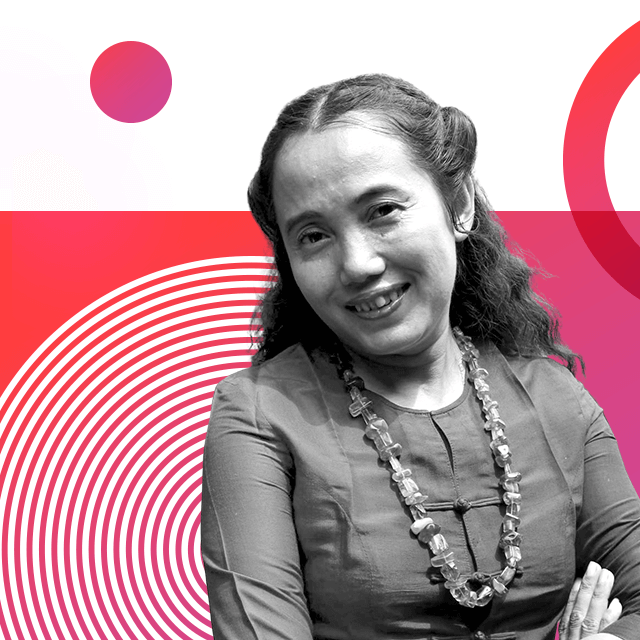
Shin Daewe, Myanmar
Film-maker
Award-winning documentary maker Shin Daewe was arrested when found with a drone in her luggage.
She was put on trial this year in military-ruled Myanmar, accused of violating counter-terrorism laws. At a closed court, she was denied legal representation and sentenced to life imprisonment.
The film-maker has opposed military rule since 1988 and is no stranger to detention.
She has directed a dozen short documentaries, many of which have attracted international attention, including her film about the 2007 pro-democracy protests, where thousands of Buddhist monks joined the demonstrations against the junta.

Vinesh Phogat, India
Wrestler
A three-time Olympian, Vinesh Phogat is one of India’s most decorated wrestlers and a vocal critic of sexist attitudes towards women in sports. She has won medals in World Championships, Commonwealth and Asian Games.
This year Phogat became India’s first female wrestler to reach an Olympic final, but was disqualified after failing the weigh-in. She later retired from sport and has joined politics.
Outspoken about gender stereotypes, Phogat was the face of a months-long protest by Indian wrestlers against their federation chief, Brij Bhushan Sharan Singh, who was accused of sexually harassing female athletes – a charge he denied.
The protest made headlines when police detained Phogat and others during a demonstration.
The ability to pull yourself up after a bad day at work and give yourself grace is what being resilient is about. – Vinesh Phogat
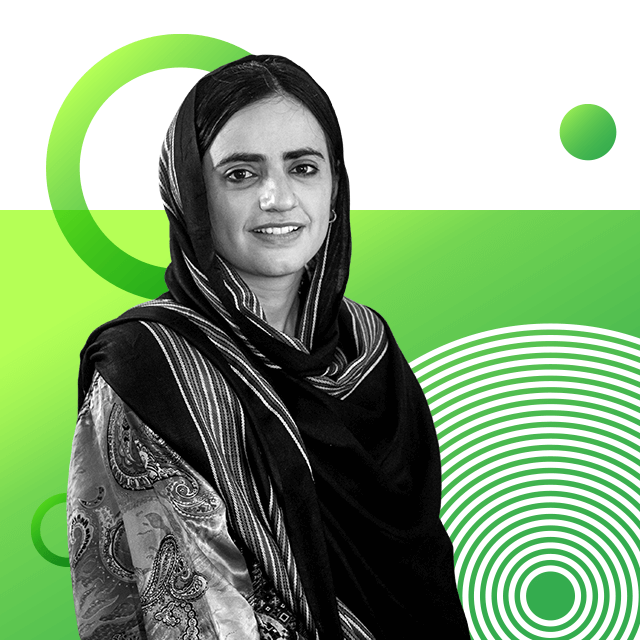
Mahrang Baloch, Pakistan
Medical doctor and political activist
Among hundreds of women across Pakistan taking part in demonstrations against alleged enforced disappearances in Balochistan province is Mahrang Baloch.
Her call for justice comes after her father was allegedly taken by security service officers in 2009 and found dead two years later with signs of torture.
In late 2023, Baloch led hundreds of women on a 1,000 mile (1,600km) march to the capital Islamabad to demand information on the whereabouts of their family members. She was arrested twice during the journey.
The medical doctor has since then become a prominent activist, under the banner of her own human rights group Baloch Yakjehti (Unity) Committee BYC. Her work in the field of human rights was recognised in the TIME100 Next 2024 list of emerging leaders.
Protesters from Balochistan province, scene of a long-running nationalist insurgency, say their loved ones have been taken and killed by Pakistani security forces, amid a counterinsurgency operation. The authorities in Islamabad deny these accusations.
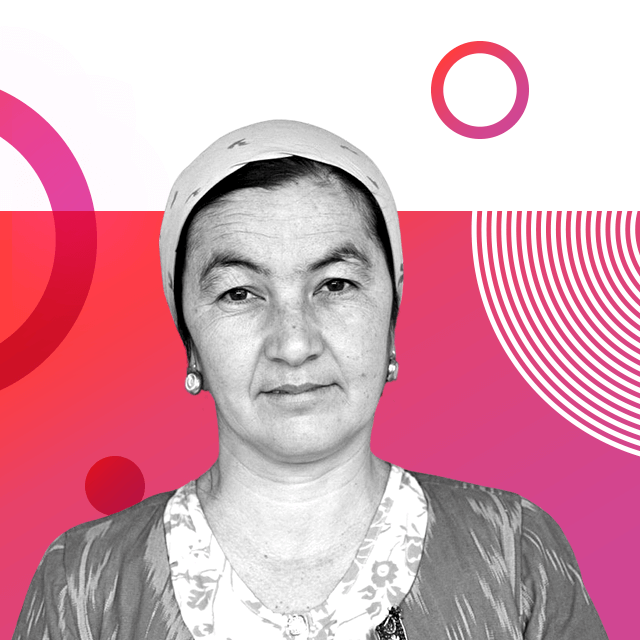
Dilorom Yuldosheva, Uzbekistan
Seamstress and businesswoman
Two years ago, Dilorom Yuldosheva lost both legs in a harvesting accident. But that did not stop her from dreaming big.
She wanted to learn new skills while also helping young Uzbek women make a living, so she decided to set up her own sewing business.
She learnt the basics of entrepreneurship and resource management and went on to train more than 40 apprentices. Within months, her company grew significantly, running free workshops and securing contracts to produce uniforms for workers and school children.
Her business has since become a source of income for her and dozens of other women.
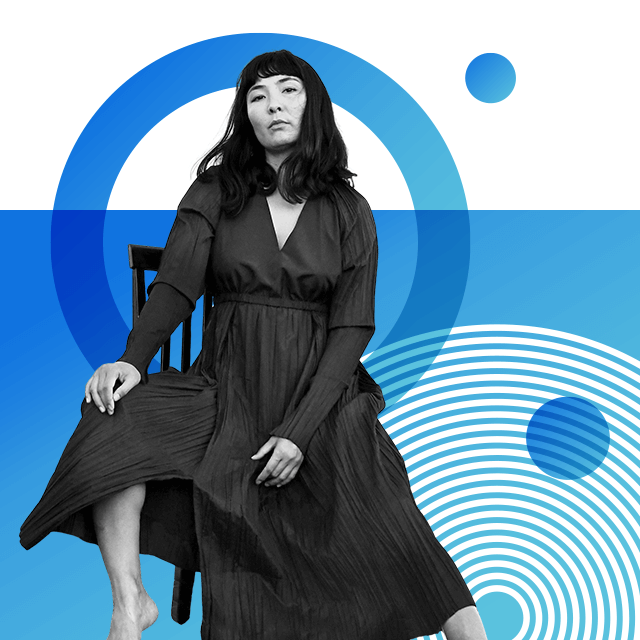
Elaha Soroor, Afghanistan
Singer and composer
At a time when the voices of women in Afghanistan are being erased from public life, singer Elaha Soroor wrote the anthem Naan, Kar, Azadi! (Bread, Work, Freedom!) to counter this suppression and send a message of encouragement.
The song premiered in October at the unprecedented All Afghan Women Summit in Albania.
In a career spanning film, theatre and music, the award-winning artist has often used her platform to champion women’s rights.
Soroor, who is from the Hazara ethnic minority, was discovered on the popular talent show Afghan Star in 2009. But she faced a violent backlash for pursuing a career in music and left the country in 2010.

Allyson Felix, US
Track and field athlete
With a record 20 World Championship medals and 11 Olympic medals to her name, Allyson Felix is the most decorated track and field athlete in history.
After having pre-eclampsia and giving birth to her daughter prematurely, she became a fierce advocate for maternal health rights. Now she has received a $20m grant from Melinda French Gates to advance maternal healthcare for black women in the US.
The retired athlete was instrumental in the creation of the first ever Olympic Village nursery, at the Paris 2024 games.
Also this year, she was elected to join the International Olympic Committee Athletes’ Commission and launched her own sports management company focused solely on women’s sports.
Resilience is about finding the strength and beauty to face tough situations head-on, and using every setback as fuel to keep moving forward. -Allyson Felix
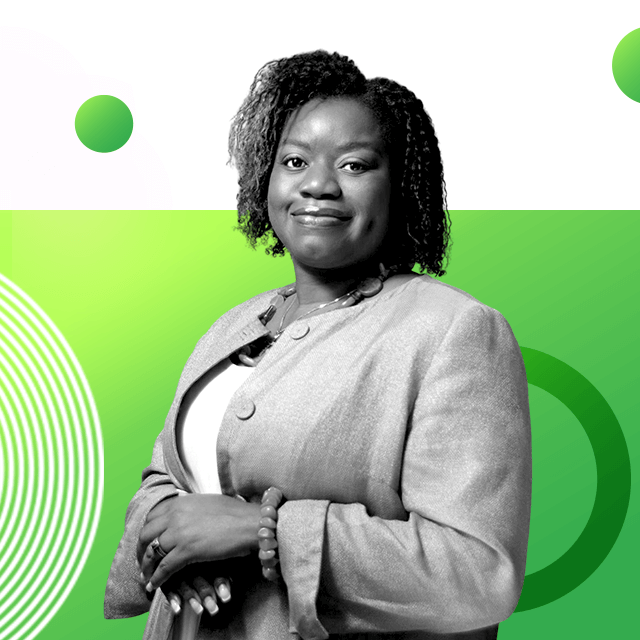
Guerline M Jozef, Haiti
Immigration rights campaigner
Working at the intersection of politics and race in the US, Guerline M Jozef campaigns for immigrant rights.
She is the founder of the women-led Haitian Bridge Alliance, which focuses on people of African descent.
Under her guidance, the alliance filed criminal charges against Donald Trump this year, over baseless claims he made about Haitian immigrants “eating pets” in a speech in Springfield, Ohio, during his presidential campaign.
Jozef has long been an outspoken critic of the ongoing deportation of Haitians. Her organisation recently urged the Biden administration to stop sending back asylum seekers who come to the US fleeing gang violence on their home island.
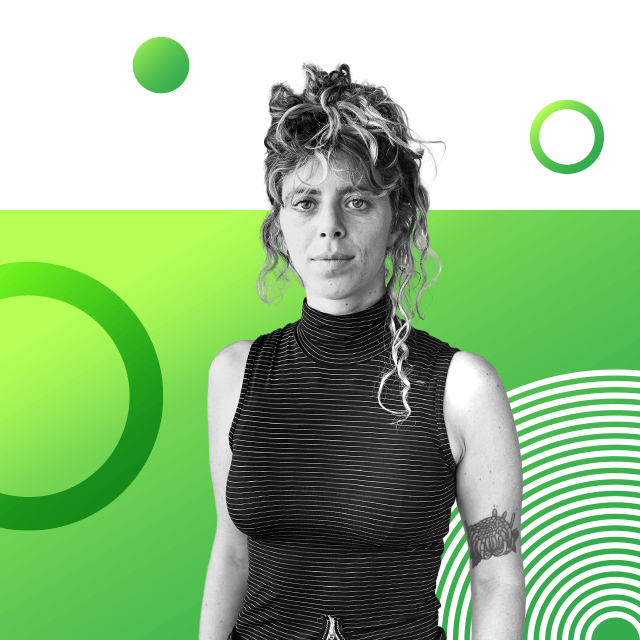
Danielle Cantor, Israel/Palestinian Territories
Cultural activist
As a co-founder of Culture of Solidarity, a grassroots project that started during the pandemic, Danielle Cantor has worked to support vulnerable communities in Israel and the Palestinian Territories.
Together with co-founder Alma Beck, she runs the House of Solidarity, a space that has become an alternative hub for debate and cultural and educational activity about human rights violations in Israel and the Palestinian territories.
She recently authored and photographed Spreads, an art book which uses food culture to examine the nuances of identity politics of communities in the region.
Along with other members of the collective Women Peace Sit-In, Cantor has been taking part in demonstrations to call for an immediate ceasefire in the Middle East and a lasting peace agreement.
When women tap into their inherent empathy, we can truly recognise systems of injustice and reimagine our way forward. – Danielle Cantor
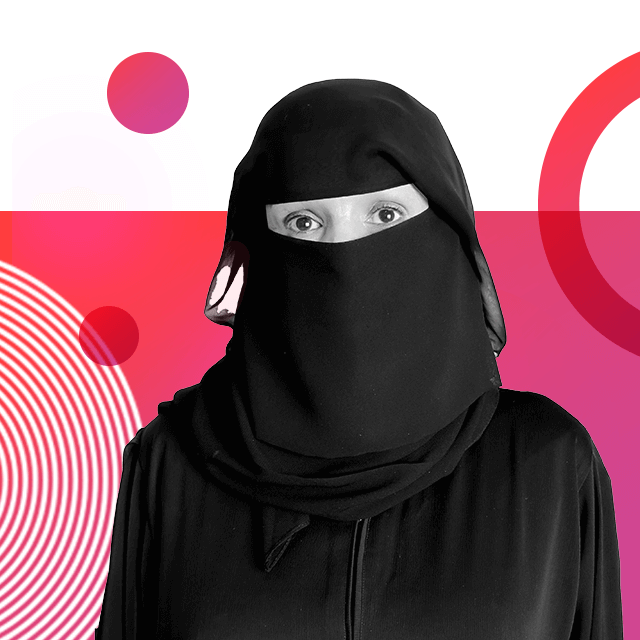
Harbia Al Himiary, Yemen
Heritage conservation engineer
With many buildings of historical importance damaged after years of war in Yemen, engineer Harbia Al Himiary embarked on a mission to give them a new lease of life.
Working with other organisations such as the UN’s cultural agency, Unesco, she has restored dozens of residential and heritage buildings in Old Sana’a and across the country. Unesco has surveyed damage at more than 16,000 sites.
Her work in the field of heritage conservation has not only preserved historic sites but also improved the quality of life of many.
Al Himiary has also trained local residents in traditional building crafts and inspired young girls to get into the industry.
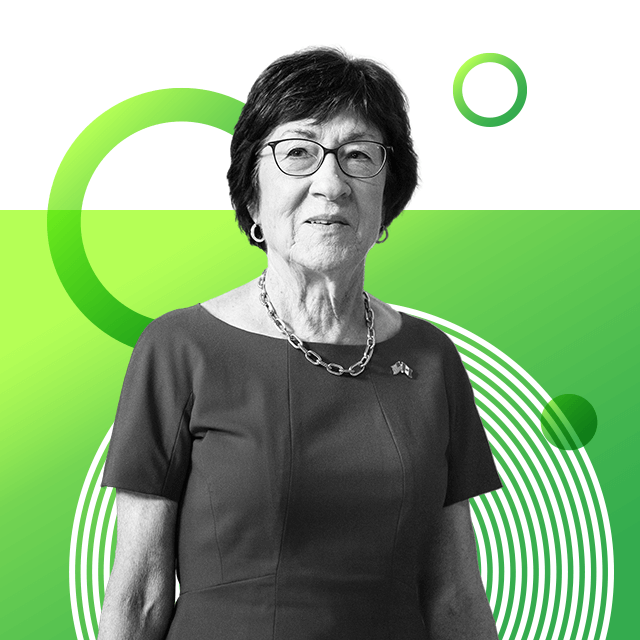
Susan Collins, US
Senator
Currently in her fifth term representing the state of Maine, Susan Collins is the longest-serving Republican woman in the US Senate.
She has frequently worked across party lines to deliver landmark legislation. She is one of six senators responsible for introducing the Advancing Menopause and Mid-Life Women’s Health Act, which will invest $275m in menopause research, treatment, and public awareness over the next five years.
Collins also authored the National Alzheimer’s Project Act, which co-ordinates a plan to prevent and treat Alzheimer’s disease. She has worked to ensure funding for the project through to 2035, and that it takes into consideration wider underserved populations including individuals with Down’s syndrome.
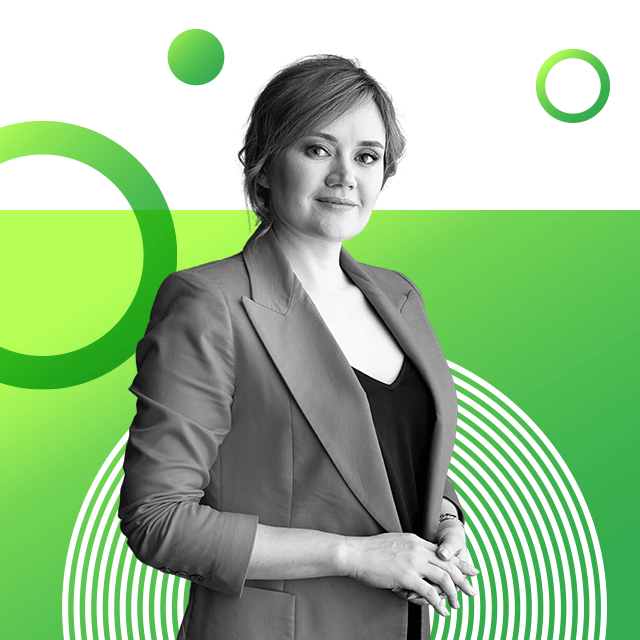
Lilia Chanysheva, Russia
Political activist and ex prisoner
One of 26 prisoners released in August this year as part of a large international prisoner exchange, political activist Lilia Chanysheva left Russia once she recovered her freedom.
Chanysheva used to head the office of late opposition politician Alexei Navalny in the Russian region of Bashkortostan. Her work involved investigating corruption and campaigning for fair elections and freedom of speech.
A successful financier, prior to working for Navalny she did tax consultancy for international firms in Moscow.
In 2021, she was arrested on extremism charges and sentenced to nine and a half years in prison. She served two years and nine months in jail before her release.
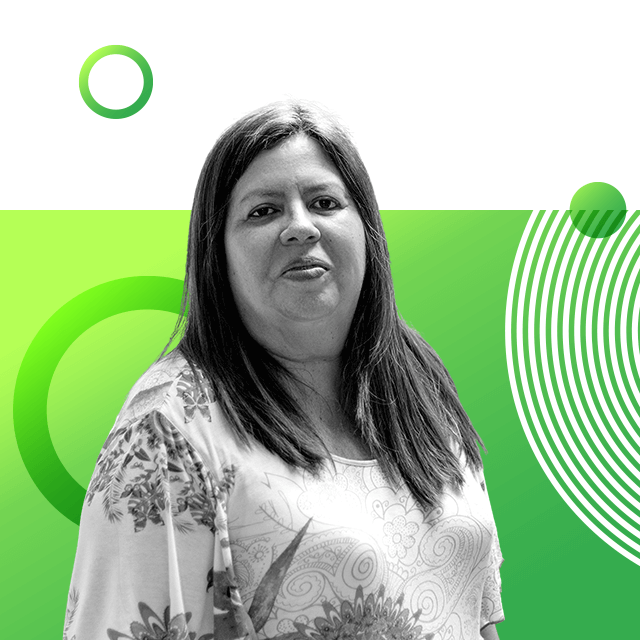
Katherine Martínez, Venezuela
Human rights lawyer
Many of the young patients at the José Manuel de Los Ríos children’s hospital in Caracas, Venezuela, come from low-income and single-parent households.
Prepara Familia, a non-governmental organisation founded by Katherine Martínez, provides them with essentials: clothing, medical supplies, food and psychological support.
As a human rights lawyer, Martínez keeps records of what she and her team see as human rights violations against children and women caregivers in a hospital setting, to allow victims to seek compensation.
Faced with high rates of malnutrition in Venezuela, Prepara Familia also opened a centre to provide children and pregnant women with nutritional supplements and vitamins free of charge.
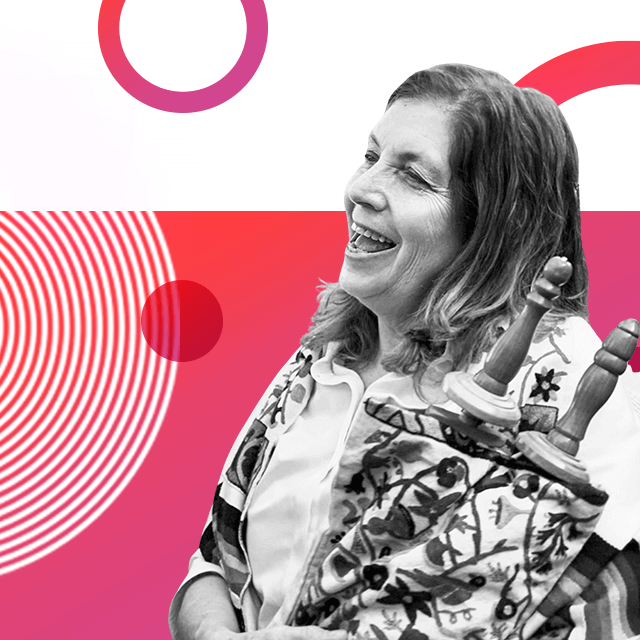
Anat Hoffman, Israel
Religious campaigner
Anat Hoffman has spent decades campaigning for gender equality and religious pluralism within Judaism.
She is a founding member of the Women of the Wall group, which seeks equal prayer rights for Jewish women at the Western Wall in Jerusalem’s Old City. Over the years, she has fought against rules barring women from wearing prayer shawls and reading from the Torah collectively.
Hoffman also served for 20 years as the executive director of the Israel Religious Action Center, the legal and advocacy arm of the Reform Movement that works to promote equality and social justice.
Prior to that, she held a seat on the Jerusalem City Council, where she challenged ultra-Orthodox policies.
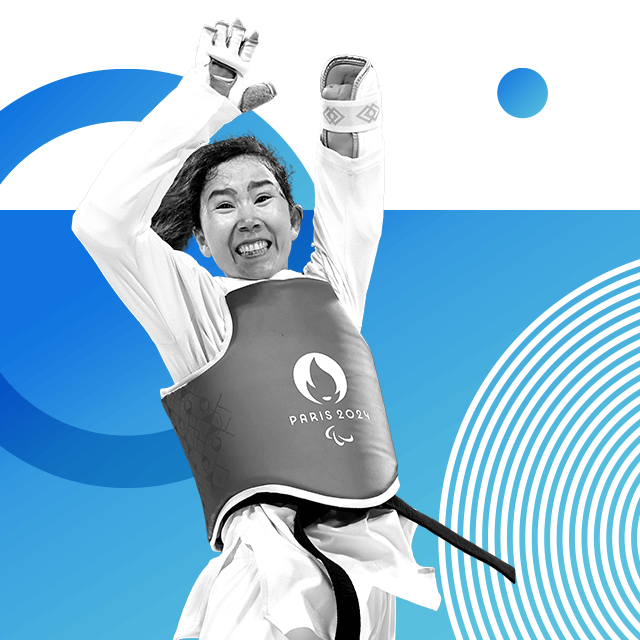
Zakia Khudadadi, Afghanistan
Taekwondo Paralympian
The first member of the Paralympic Refugee Team ever to win a medal, Zakia Khudadadi made history at the 2024 Paris games.
The athlete, who was born without one forearm, began practising taekwondo secretly at the age of 11 in a hidden gym in her hometown of Herat, in western Afghanistan.
She was initially denied the opportunity to compete at her first Paralympics in Tokyo following the Taliban’s return to power in 2021.
But with intervention from the International Paralympic Committee and the support of France, she was safely evacuated from Afghanistan and became the first Afghan sportswoman to participate in an international sporting event following the Taliban takeover.
My journey to the Olympic medal speaks of the power of resilience of Afghan women, of refugee women, of every woman. By not giving up, we continue to show there is nothing a woman cannot do. – Zakia Khudadadi
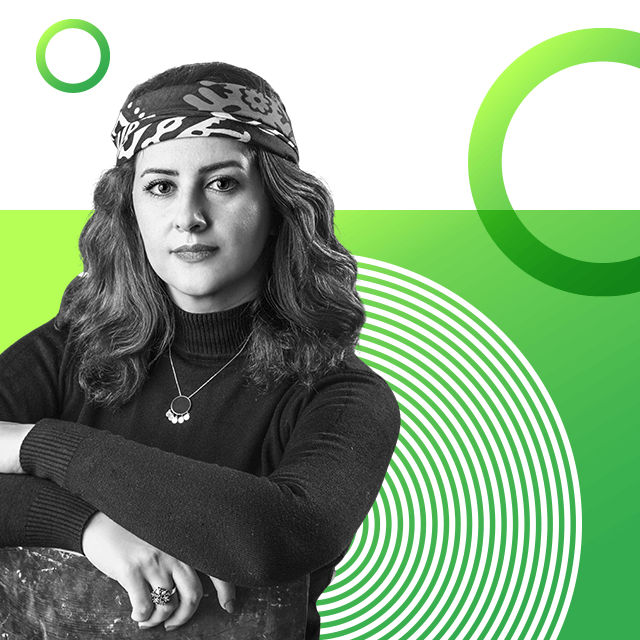
Zhina Modares Gorji, Iran
Women’s rights campaigner
Kurdish journalist and activist Zhina Modares Gorji co-founded the Zhivano Women’s Association in 2019, which uses education and protest to fight violence against women.
Arrested twice since the start of Iran’s Woman, Life, Freedom movement, Modares Gorji was initially sentenced to 21 years in prison on charges including “propaganda against the regime”. She is currently serving a reduced sentence of two years and four months.
Modares Gorji was a member of the One Million Signatures campaign to gather public support for legislation reform in Iran, addressing laws that discriminated against women.
She is behind a Kurdish women’s photography group, a women’s podcast and a children’s book featuring inspiring Kurdish women.
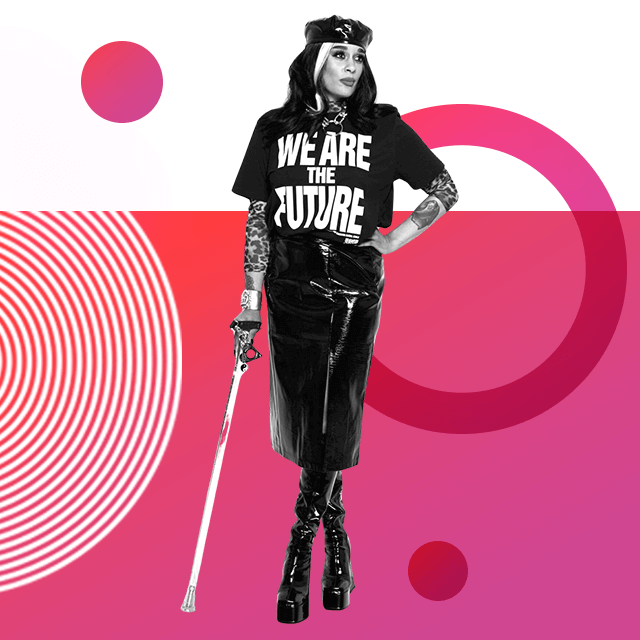
Roxy Murray, UK
Disability rights advocate
Speaking openly about her experiences as a pansexual person living with multiple sclerosis (MS), Roxy Murray uses her platform to empower chronically ill people and challenge exclusion in the medical, charity and corporate sectors.
Murray’s activism uses her background in fashion, helping people transition to mobility aids with style and promoting visibility for people with disabilities from minorities and ethnically diverse groups.
She is the founder of The Sick and Sickening podcast, which shares unfiltered stories about living with disability and illness, from pain management to sexual health and body and sex positivity.
As a queer, brown and disabled woman, resilience is both deeply personal and profoundly collective. It’s about the strength to challenge systems that have marginalised people like me. – Roxy Murray
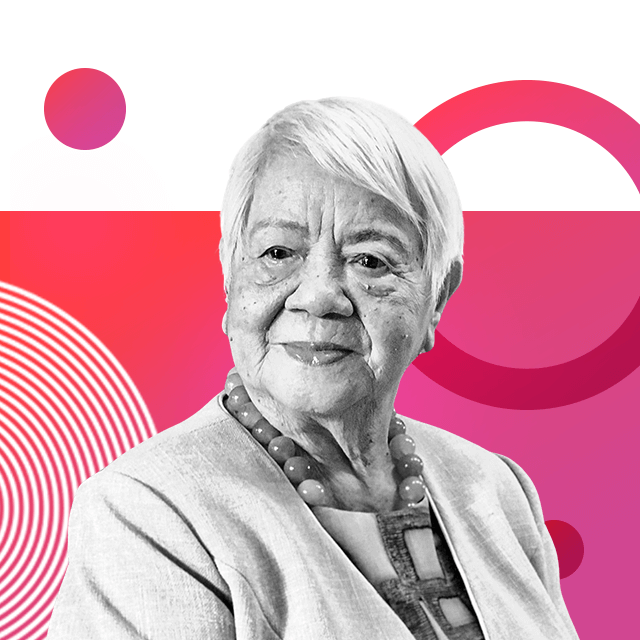
Xuân Phượng, Vietnam
Film director, author, gallery owner
Approaching her 95th birthday, writer and director Xuân Phượng has lived a very full life.
She has experienced two wars in Vietnam, and fought for the country’s independence from France as a 16-year-old.
Having graduated as a doctor, she has been head of a clinic, a war correspondent and a film director for Vietnam Television, witnessing historic moments such as the fall of Saigon.
At the age of 62, rather than retiring, she started the Lotus Gallery – one of the first private galleries in Ho Chi Minh City – seeking to bring Vietnamese art to the world. She has gone on to nurture local artists to achieve widespread fame.
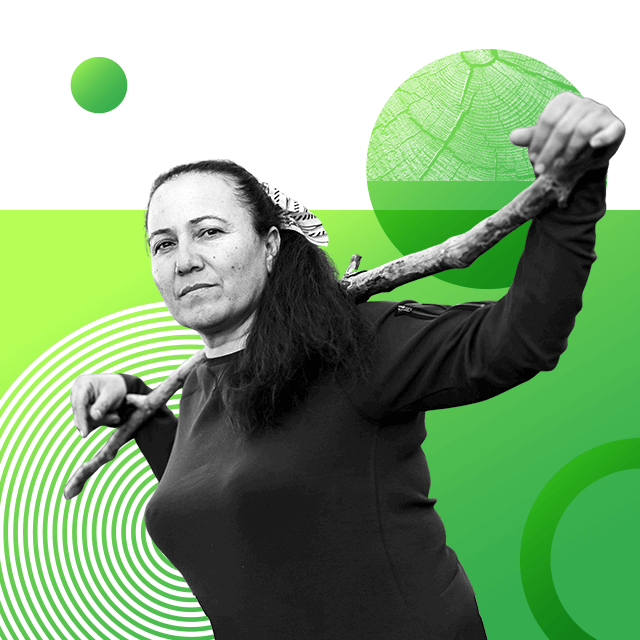
Nejla Işık, Turkey
Village head and forest campaigner
Recently elected as the head of the İkizköy area in western Turkey, farmer Nejla Işık has led a struggle against deforestation for the past five years.
When the nearby Akbelen Forest came under threat due to proposals for a coal mine, Işık and other local women fought back with lawsuits and protests to stop the logging that would clear the land for mining projects.
At times their environmental campaign resulted in fierce clashes between the police and protesters standing guard to defend the woodland, but Işık and other villagers vowed to stand firm despite the challenges and threats they face, including being fined for entering the forest without permission (the fine was later cancelled).
Women at home, in the fields, on the streets, in the struggle… they are the ones beautifying the world, and undoubtedly, they will save it. – Nejla Işık
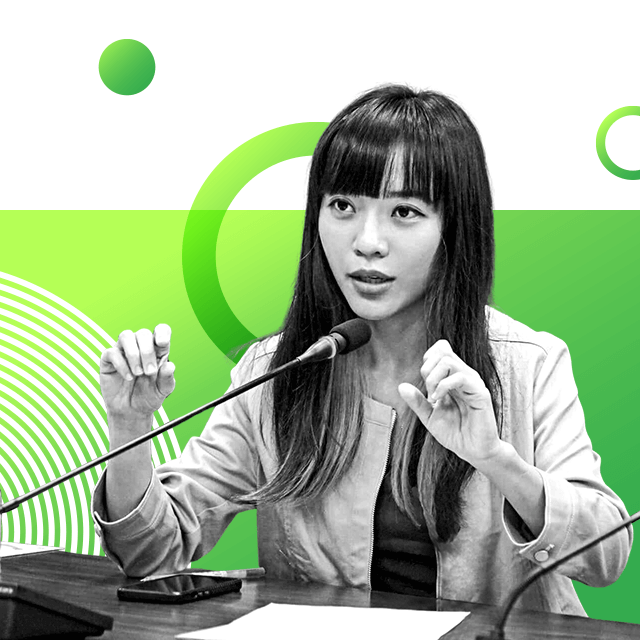
Huang Jie, Taiwan
Politician
Known for championing gender equality, Huang Jie made history in January this year when she won a seat in parliament and became Taiwan’s first openly LGBTQ+ legislator.
She has pushed major reforms during her political career, including advocating the rights of single women and lesbian couples to get fertility treatment and highlighting further laws needed to address the issue of period poverty.
After coming out publicly in 2023, she has spoken openly about the abuse she has faced. As a victim of deepfake pornography, she advocates strengthening existing laws to combat digital sexual violence.
True resilience lies in embracing diversity. The more voices we include, the stronger we become – especially those once considered weak, women and LGBTQ+.- Huang Jie
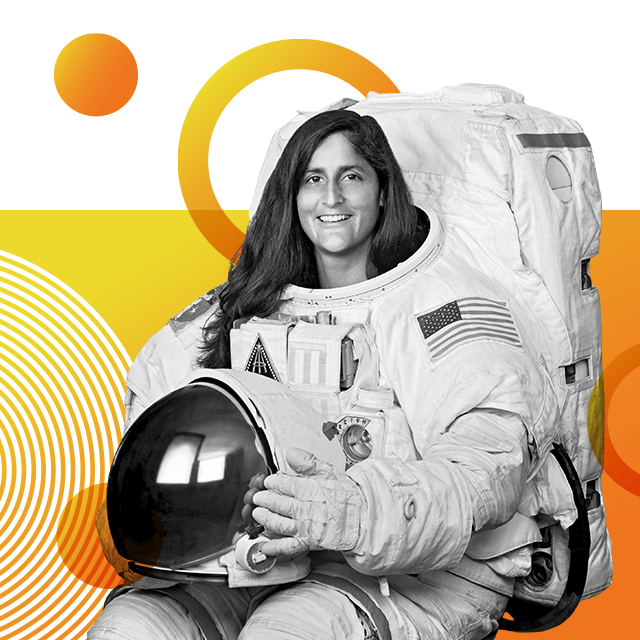
Sunita Williams, US
Astronaut
When Nasa astronaut Sunita Williams boarded the Boeing Starliner spacecraft on 5 June, she was expecting to embark on an eight-day mission to the International Space Station (ISS).
But following a series of technical faults on board, Williams and her colleague Barry Wilmore were informed they would not return to Earth until February 2025.
Williams, a retired Navy helicopter pilot and former record holder for the most spacewalks by a woman, became the first person to run a marathon in space in 2007.
Despite now being away from friends and family 250 miles (400km) above Earth, she has embraced the extended stay with resilience and an upbeat attitude, describing the spacecraft as her “happy place”.
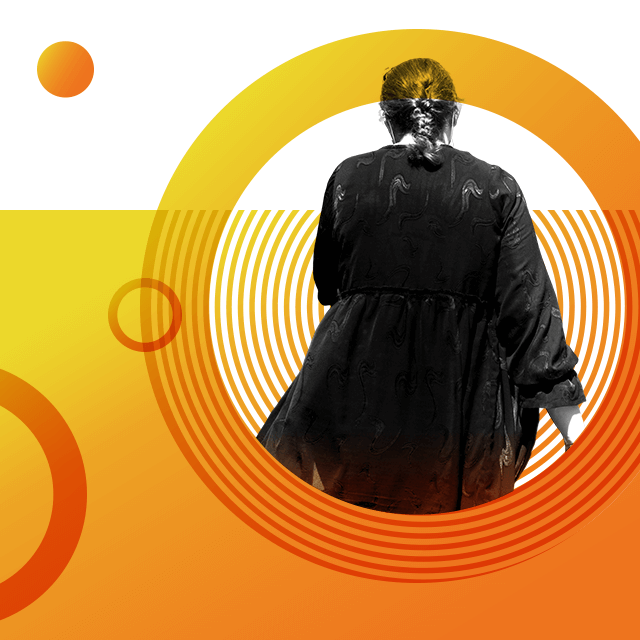
Samia, Syria
Psychology counsellor
Psychology specialist Samia – whose identity the BBC is keeping anonymous to protect her personal safety – has been supporting Syrians facing the trauma caused by years of conflict.
The long-running civil war has killed hundreds of thousands of people, and many of those who survive have been left living in often dire conditions and dealing with mental health issues such as depression and anxiety.
Working at a mental health clinic managed by the International Rescue Committee, Samia runs counselling sessions for displaced people and their families in a refugee camp in north-eastern Syria.
Despite the scarce resources, she remains dedicated to improving her patients’ mental health and committed to promoting awareness in crisis settings.
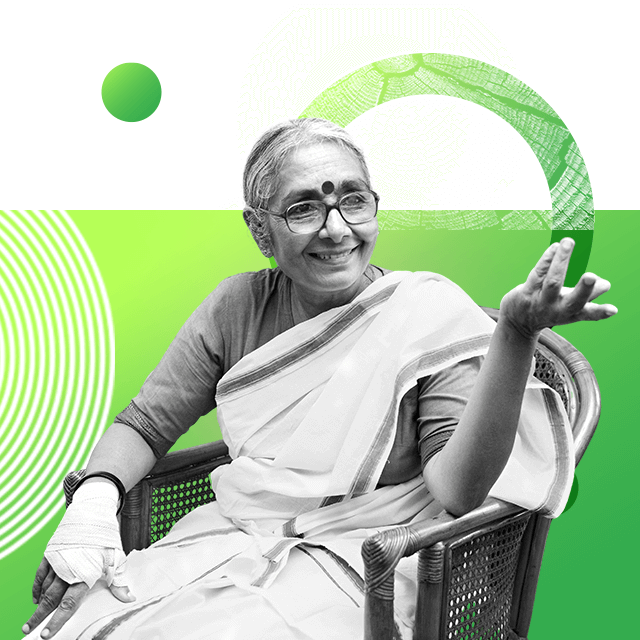
Aruna Roy, India
Social activist
A campaigner for the rights of the poor in India, Aruna Roy left a career in the civil service to engage more directly with rural communities.
She is co-founder of grassroots organisation Mazdoor Kisan Shakti Sangathan (MKSS), which focuses on transparency and fair wages, and was instrumental in the enactment of a landmark 2005 law enabling citizens to demand government accountability.
Over four decades, Roy has been at the forefront of people-led initiatives, earning her multiple awards including the Ramon Magsaysay, often called the “Nobel Prize of Asia”.
She is president of the National Federation of Indian Women and this year she has published her memoir, The Personal is Political.
Obsessed with the grand design, we often fail to recognise the dream next door. – Aruna Roy
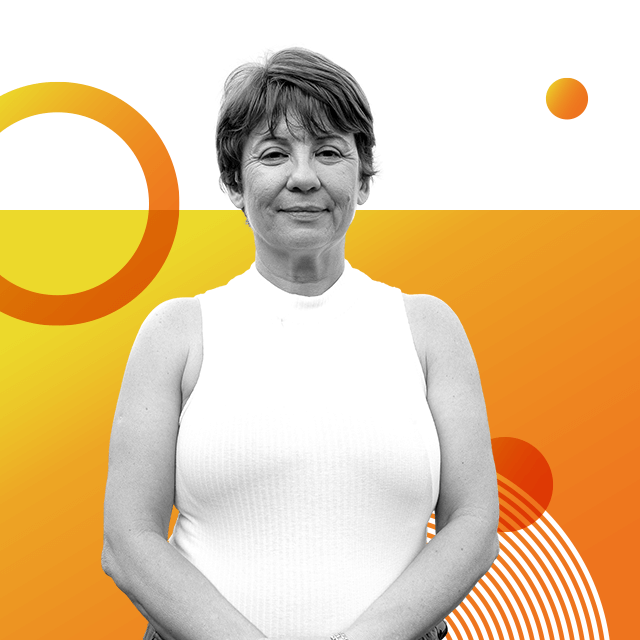
Silvana Santos, Brazil
Biologist
Pioneering biologist Silvana Santos attributes her ground-breaking discovery in the field of genetics entirely to chance – she met a family with an unknown disease on the very street where she lived.
She went on to identify the Spoan syndrome (spastic paraplegia, optic atrophy, and neuropathy), a rare genetic neurodegenerative disorder which causes progressive paralysis in north-eastern Brazil.
In the 20 years since she started her research in the town of Serrinha dos Pintos, Santos has helped residents affected by the condition to get a crucial diagnosis.
She studies the occurrence of rare genetic diseases and their relationship with marriages between people who are closely related in poor areas of rural Brazil.
How do we demonstrate the power of resilience? Realising that life is a cycle. In the torrid drought, we just survive. In the rainy season, we flourish and grow fruit. -Silvana Santos
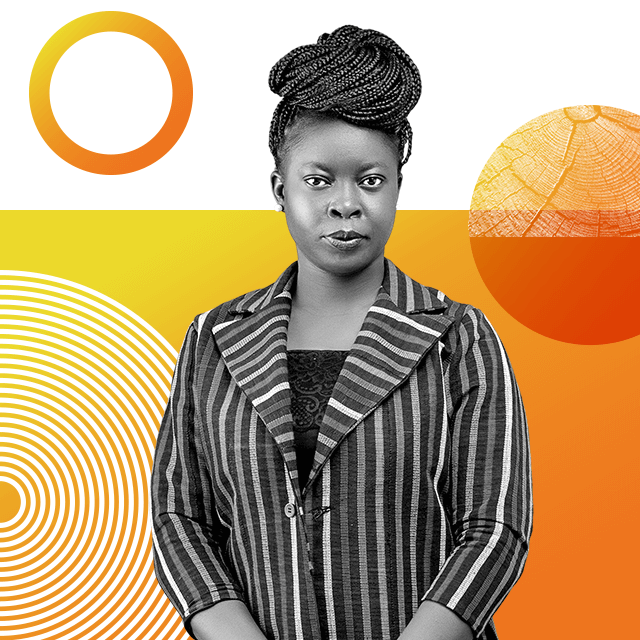
Adenike Titilope Oladosu, Nigeria
Climate justice advocate
Nigerian ecofeminist Adenike Titilope Oladosu is the founder of I Lead Climate Action, a grassroots initiative of women and youth to fight climate change.
She has worked to raise awareness about the environmental crisis affecting Lake Chad – at the junction of Nigeria, Niger, Chad and Cameroon – where shrinking water resources have exacerbated conflicts.
Oladosu’s work addresses both environmental and social issues, especially as they affect African women, whom she equips with skills in sustainable farming in areas where desertification directly impacts food security.
Taking part in multiple United Nations’ Climate Change Conferences from 2019 onwards, she has urged policymakers to prioritise climate resilience in Africa.
The climate crisis is a resilience issue that leaves us no option other than to win. To survive this crisis, we need critical investment in technology and innovation. – Adenike Titilope Oladosu
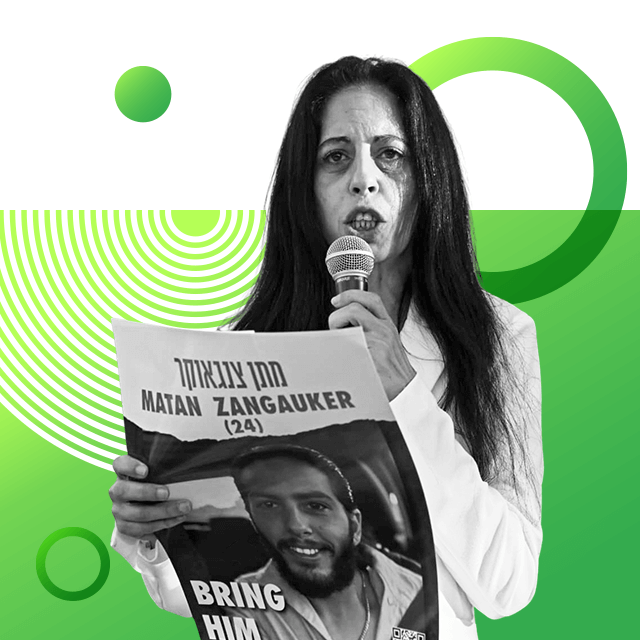
Einav Zangauker, Israel
Hostage release campaigner
Campaigner and single mother Einav Zangauker’s 24-year-old son Matan was taken hostage in the Hamas attacks of 7 October. Her son’s partner Ilana was kidnapped separately and eventually returned in a prisoner swap.
Since then, she has persistently brought attention to the hostage crisis, calling on leaders to take action and rallying the public to demonstrate week after week.
Zangauker has become an outspoken critic of the Israeli government for failing to find a way to bring the hostages home, even though she had previously voted for Prime Minister Benjamin Netanyahu’s ruling party.
She is demanding a ceasefire deal to secure the release of the remaining hostages.
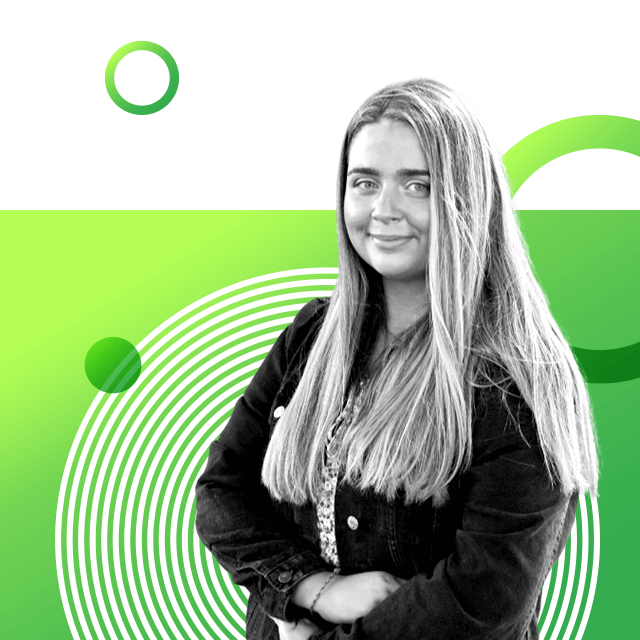
Latisha McCrudden, Ireland
Irish Traveller Movement activist
She is only 20, but Latisha McCrudden has already established herself as a fierce advocate for the Irish traveller community.
As a member herself, she wants to fight taboos around ethnic minorities in Ireland and use her voice as a domestic abuse survivor to fight violence against women and girls.
A law student at the University of Galway, McCrudden serves as a member of the Irish Traveller Movement National Youth Forum, the National Women’s Council of Ireland, and Traveller support group, Mincéirs Whiden.
She hopes to run in the next local elections in 2029 and make a difference for the future of Ireland.
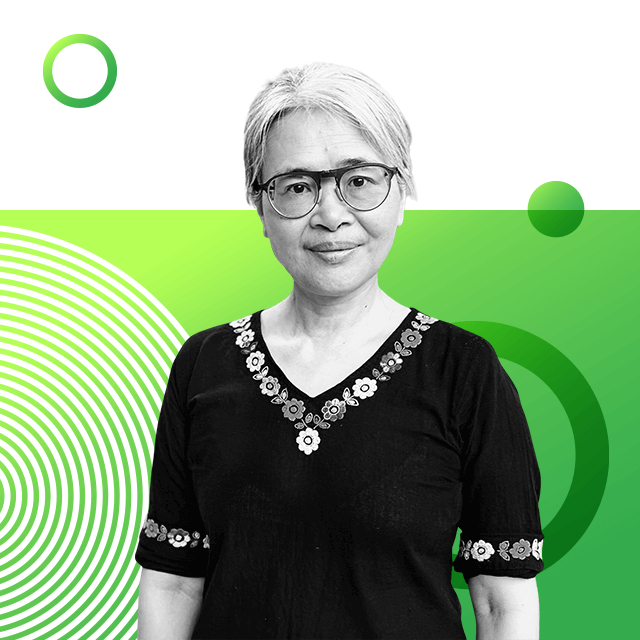
Feng Yuan, China
Women’s rights advocate
A longstanding advocate for women’s rights in China, Feng Yuan is the founding director of Equality Beijing. Set up in 2014, the organisation is dedicated to legal reform, capacity building and combating gender-based violence via a helpline.
In recent years, she has been supporting China’s MeToo survivors and providing training to employers to prevent sexual harassment in the workplace.
Feng worked as a journalist focusing on women’s issues from 1986 to 2006.
Since the mid-1990s, she has helped to set up various non-governmental initiatives around women and the media, HIV/Aids, leadership, and youth empowerment. She has authored and edited publications in China and beyond.
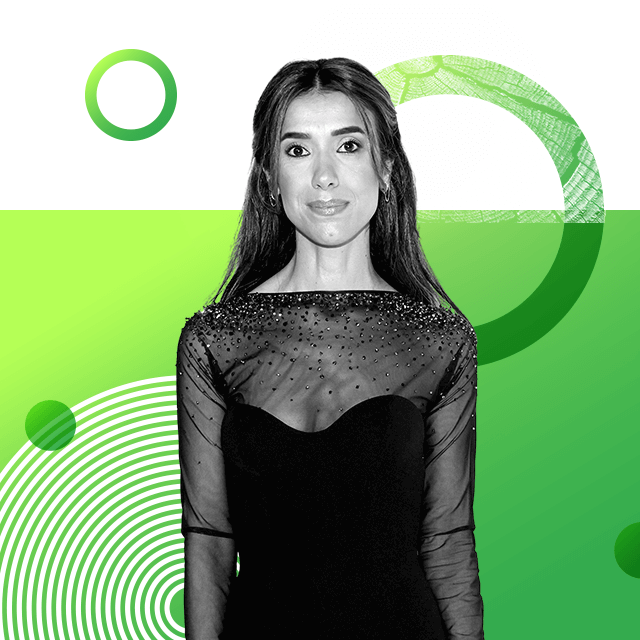
Nadia Murad, Iraq
Nobel Peace Prize laureate
Now a leading advocate for survivors of sexual violence, human rights activist and Nobel Peace Prize winner Nadia Murad endured the Yazidi genocide in Iraq, carried out by the group calling itself Islamic State (IS) in 2014.
She was captured by IS militants, forced into slavery, and subjected to rape and abuse. Murad escaped after three months, and has recounted her ordeal to the world to raise awareness about conflict-related sexual violence.
She partnered with human rights lawyer Amal Clooney to hold IS accountable and launched Nadia’s Initiative to help rebuild communities and advocate for reparations for survivors.
Ten years after the Yazidi massacre, Murad continues to be a global symbol of resilience.
We must wield what I call ‘weapons of the spirit’ to fight for equality and justice: truth, hope, and compassion. – Nadia Murad
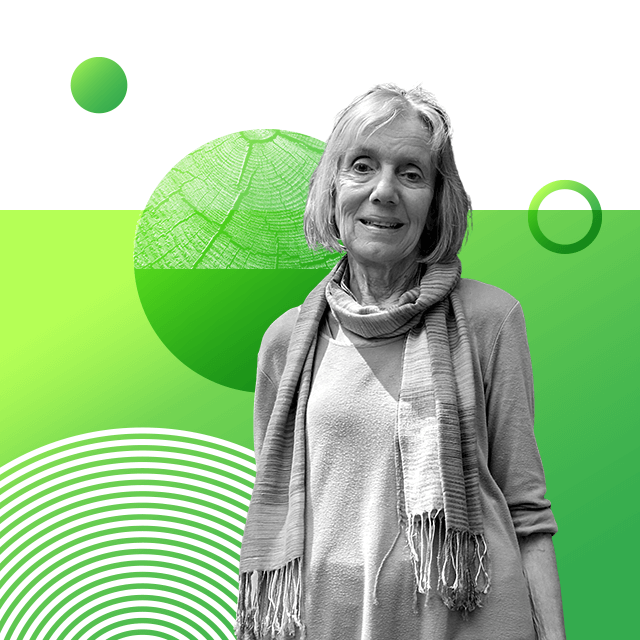
Rosmarie Wydler-Wälti, Switzerland
Teacher and climate campaigner
As a co-president of KlimaSeniorinnen – or Senior Women for Climate Protection – Rosmarie Wydler-Wälti led a nine-year battle against the Swiss government to win the first-ever climate case at the European Court of Human Rights.
With 2,000 other women, kindergarten teacher and counsellor Wydler-Wälti argued the Swiss government’s response to heatwaves linked to global warming prejudiced their right to health, and that their age and gender made them particularly vulnerable.
In April, the court ruled that the country’s efforts to meet emission reduction targets had been inadequate.
Although the Swiss parliament later rejected the ruling, the case set a new precedent for climate litigation.

Amanda Zurawski, US
Reproductive rights advocate
In August 2022, Amanda Zurawski discovered her waters had broken prematurely. Doctors told her the foetus would not survive.
Zurawski lives in Texas and was denied an abortion. Following the Supreme Court’s overturning of Roe v Wade two months earlier, the state had banned the procedure except in cases where the patient’s life was at risk. Three days later, she went into septic shock, and with her life in danger she was finally granted an abortion.
In March 2023, Zurawski and 19 other women with similar stories filed a lawsuit against the state – the first case brought by women denied abortions since the reversal of Roe v Wade. The Texas Supreme Court rejected the abortion ban challenge.
She now vows to continue the fight to “restore and protect reproductive rights in the country”.
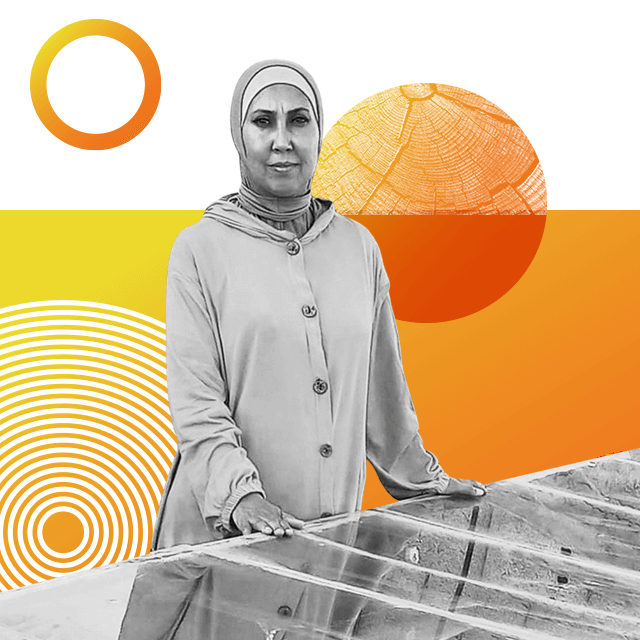
Enas Al-Ghoul, Palestinian Territories
Agricultural engineer
When water became scarce in Gaza due to the war, Enas Al-Ghoul felt she had to find a solution.
The agricultural engineer used recycled materials such as wood, glass and tarpaulins to create a solar-powered desalination device able to turn seawater into drinkable water.
The device has since become a lifeline for many living in tents in the Khan Younis area in the south of the Gaza Strip, as water and sanitation facilities have been damaged or destroyed by Israeli military action since October 2023.
Determined to use her skills to help displaced Palestinians, Al-Ghoul has also created a solar-powered cooker and learnt to recycle materials to create items such as mattresses and bags.
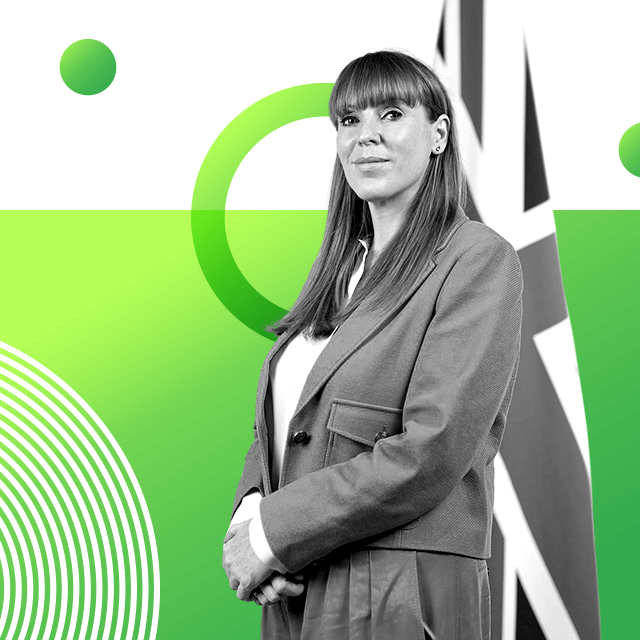
Angela Rayner, UK
Deputy Prime Minister
Holding one of the highest positions in UK politics, Angela Rayner became deputy prime minister following the July general election.
Born and raised in Stockport, Rayner was a carer for her mother from an early age and left school pregnant aged 16. She worked in social care for the local council and climbed the ranks to become a trade union representative.
Rayner was first elected to Parliament as Labour MP for Ashton-under-Lyne in 2015 – the first woman to represent the constituency – and later served as shadow minister for women and equalities, among other roles.
She is currently the secretary of state for housing, communities and local government.

Fawzia al-Otaibi, Saudi Arabia/UK
Women’s rights campaigner
Taking to social media to make her voice heard, Fawzia al-Otaibi has long campaigned for the end of the male guardianship system in Saudi Arabia.
But after being summoned by the authorities for questioning, she decided to flee the country.
Her sister Manahel al-Otaibi – also a women’s rights campaigner – was arrested and sentenced to 11 years in prison earlier this year, after being convicted of charges related to her clothing choices and the views she had expressed online, according to human rights groups. Her older sister, Maryam, has also been banned from travelling.
Al-Otaibi has campaigned relentlessly for Manahel’s release. A recent crackdown on dissent has seen many imprisoned in Saudi Arabia for social media posts.

Shireen Abed, Palestinian Territories
Paediatrician
Israeli airstrikes and a drastic lack of resources did not stop Shireen Abed from taking care of newborn babies in Gaza.
She was displaced after the start of the Israel-Gaza war in 2023 as her flat was bombed, but the neonatal specialist continued to care for babies in nearby displacement camps.
Drawing on years of experience in neonatal units at Gaza’s main hospitals – most recently as director of the maternity centre in Al-Shifa Medical Complex – she established emergency protocols to enable medics to provide life-saving treatments with very limited resources, and trained other doctors.
Conditions forced her to leave Gaza with her two daughters earlier this year, but Abed continues to assist doctors on the ground remotely.
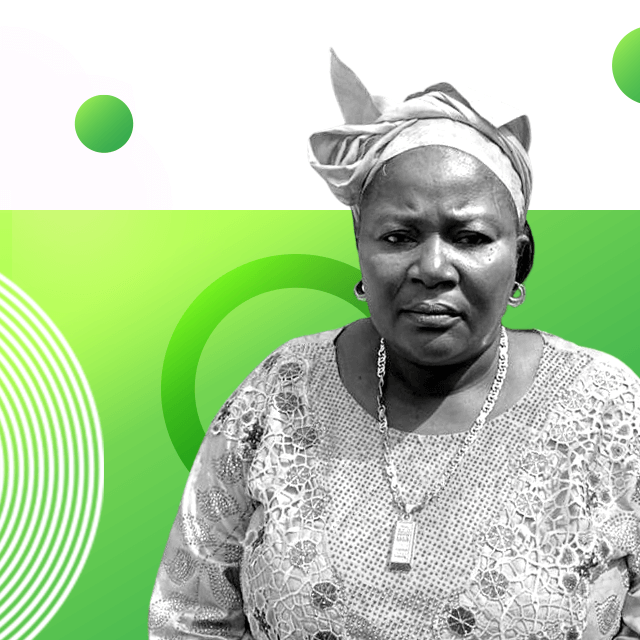
Annie Sinanduku Mwange, DR Congo
Miner
As a woman in the Congolese mining business, Annie Sinanduku Mwange leads a grassroots movement to combat inequality and sexual harassment in the industry, where half of the workers in artisanal pits are women.
A leader of the national Women’s Mining Network Renafem, she asserts herself as a “mère boss”, or mother boss, putting women in charge of mining spots as a means to prevent sexual exploitation from male colleagues.
By investing in women’s livelihoods, she also hopes to reduce child labour in the field, as global demand increases for cobalt and other minerals needed for clean energy products like electric cars.
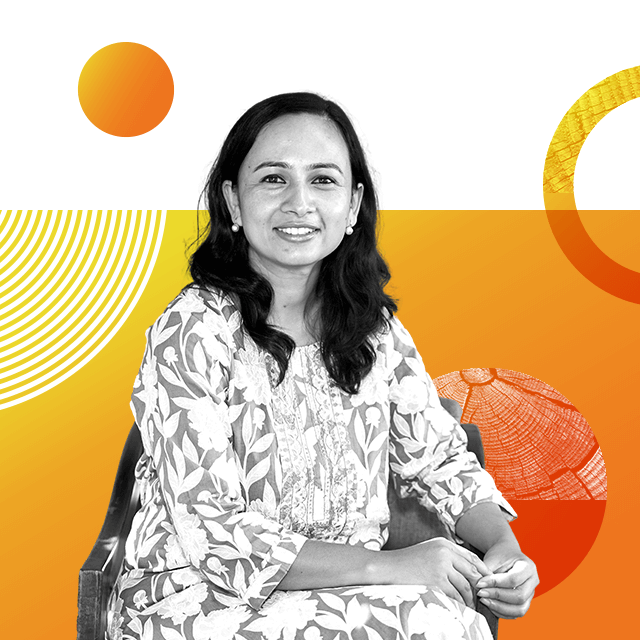
Shilshila Acharya, Nepal
Sustainability entrepreneur
Shilshila Acharya runs one of the largest plastic recycling networks in Nepal. Her waste management business Avni Ventures employs staff from marginalised communities and focuses on getting more women into the green sector.
Acharya played a leading role in the 2014 No Thanks, I Carry My Own Bag campaign, which led to a ban on plastic shopping bags.
The climate and waste educator is also behind a big annual clean-up in the Himalayas to remove rubbish left by mountaineers, collecting 119 tonnes since 2019.
Through her work, some of this waste is reused by indigenous craftswomen to create baskets, mats and jewellery to support their livelihoods.
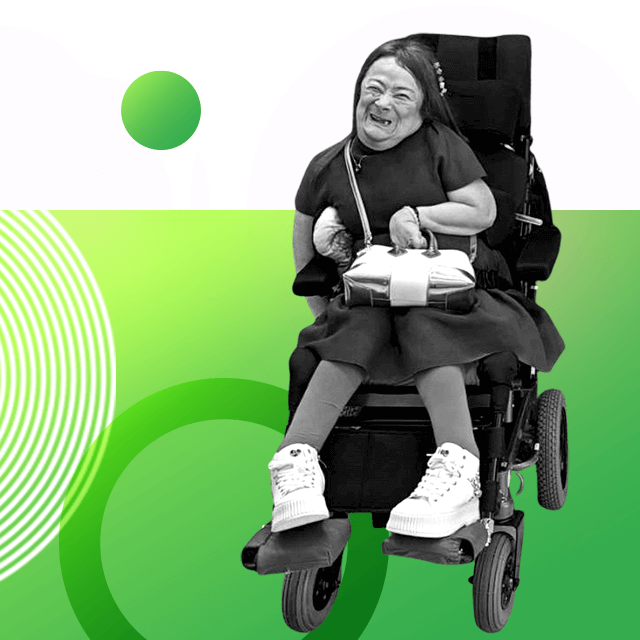
Yumi Suzuki, Japan
Plaintiff in forced sterilisation lawsuit
Born with cerebral palsy, Yumi Suzuki was discriminated against from a young age. When she was 12 years old, she was subjected to a hysterectomy, a procedure to surgically remove her uterus.
From the 1950s to the 1990s, some people with disabilities like Suzuki were forcibly sterilised in Japan because of a eugenics law that was only repealed in 1996.
Suzuki and 38 other plaintiffs sued the government and, after years in the courts, she won her case. In July, Japan’s Supreme Court ruled the practice unconstitutional and ordered the government to pay compensation to the victims.
The authorities have acknowledged that 16,500 sterilisations were performed without consent.
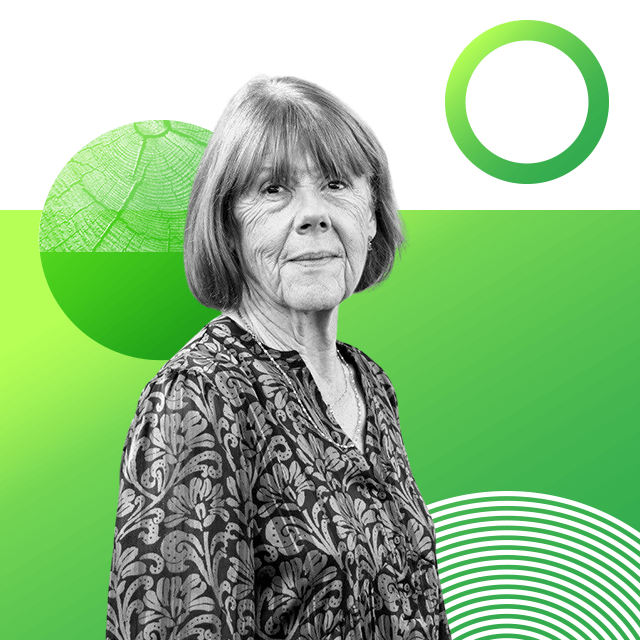
Gisèle Pelicot, France
Rape survivor
By waiving her right to anonymity and allowing her story to reach the world, Gisèle Pelicot has become a symbol of courage and resilience.
Her former husband has admitted drugging and raping her when they were married, and recruiting dozens of other men to rape her as well. Most of the alleged rapes were filmed.
By law, Pelicot was entitled to anonymity, but she instead asked for the trial to be open and for the videos to be shown, in a bid to shift the “shame” back on to the accused. Some of the 50 other men involved in the case have admitted rape, but the majority say they only took part in sexual acts.
While the trial reaches its final stage, women across the world have been inspired by the French grandmother, who hopes her case will change French law and attitudes around rape and consent.
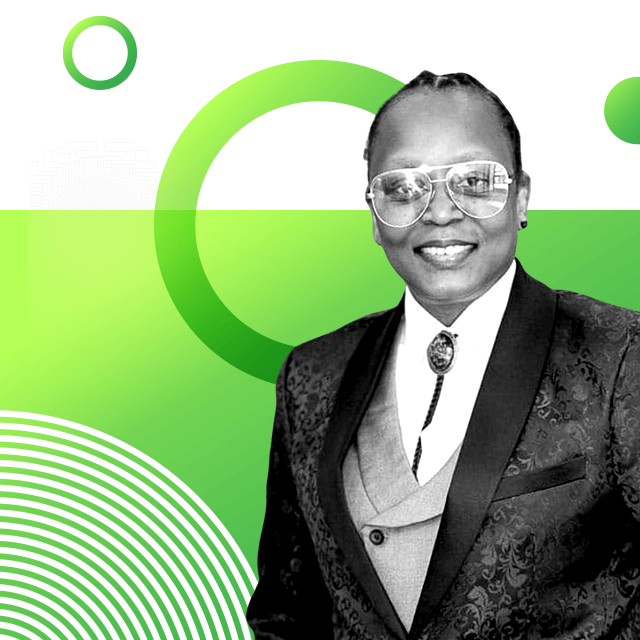
Kasha Jacqueline Nabagesera, Uganda
Diversity and inclusion campaigner
Homosexual acts are illegal in Uganda, punishable by prison sentences – and LGBTQ+ advocate Kasha Nabagesera is fighting to change these repressive laws.
As an openly gay woman, she has made a profound impact campaigning against LGBTQ+ stigma across Africa.
Nabagesera has successfully sued newspapers and the Ugandan government for anti-LGBTQ+ rhetoric: she has twice challenged anti-homosexuality laws in Ugandan courts and is currently challenging a 2023 act.
Her academic journey includes a business degree from Nkumba University in Uganda, a fellowship from Stanford University, and contributions to diversity initiatives at high-level forums such as the UN, the European Parliament, and the African Commission.
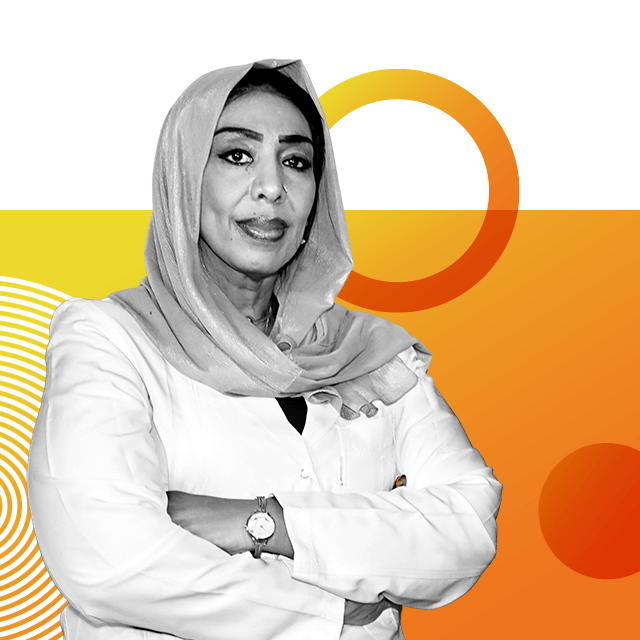
Safa Ali, Sudan
Obstetrician
When heavy fighting broke out near her hospital in Sudan last year, Safa Ali refused to leave with her colleagues, despite the constant shelling.
A consultant in obstetrics and gynaecology, she helped evacuate volunteer staff and pregnant women to a safer location, amid violent clashes between the army and the paramilitary Rapid Support Forces.
Currently at Al-Saudi Maternity Hospital, the obstetrician performs Caesarean sections and treats women’s health issues under the challenges posed by ongoing conflict.
She also continues to train about 20 newly graduated female doctors in obstetrics to help mitigate the shortage of medical personnel.
I believe that through women’s resistance there is a promise of healing, justice and future where we no longer have to live in fear. It is their strength that reminds me hope still exists, even in the darkest moments. – Safa Ali
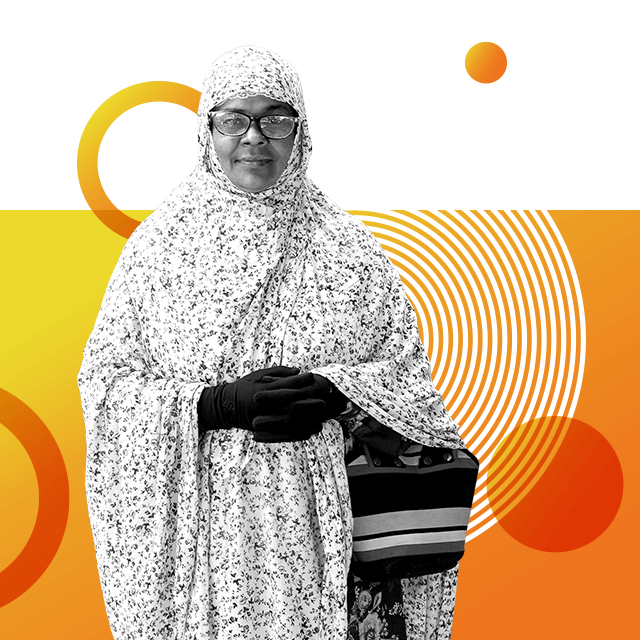
Rikta Akter Banu, Bangladesh
Nurse and school founder
In the remote area of northern Bangladesh where nurse Rikta Akter Banu lives, having an autistic or disabled child is seen as a curse.
When her own daughter, who is autistic and has cerebral palsy, was refused admission to their local primary school, she sold her land and built her own school instead.
The Rikta Akhter Banu Learning Disability School now enrols 300 students and has made a positive impact on the community’s views around disability.
While the school was initially built for children who are autistic or have a learning disability, it now caters for young students with a variety of intellectual and physical disabilities.
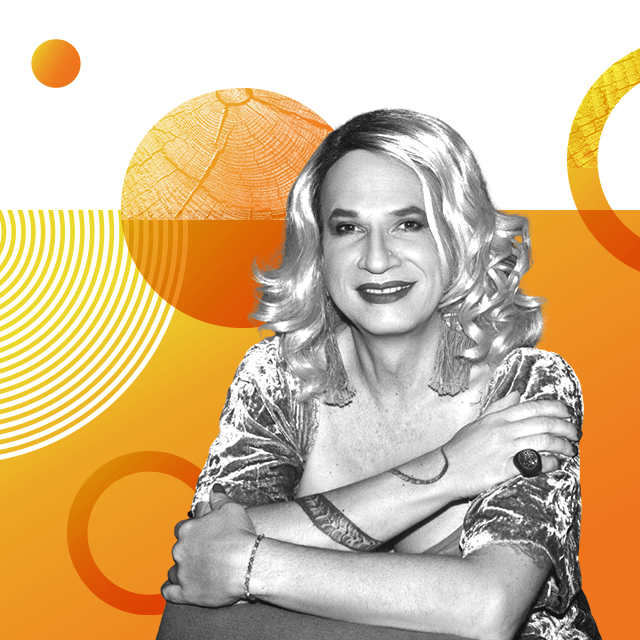
Brigitte Baptiste, Colombia
Ecologist
As a transwoman biologist, Brigitte Baptiste explores the common patterns between biodiversity and gender identity.
She uses a queer lens to analyse landscapes and species in a bid to expand the notion of ‘nature’ to better protect ecosystems. In her 2018 TEDx talk, she used the Quindío wax palm, Colombia’s national tree, as an example of how “the change of sex and gender has been regularly reported by science” across the lifetime of species.
A renowned academic, Baptiste spent 10 years as director of the Alexander von Humboldt Institute and currently serves as president of Universidad EAN in Bogota, a higher-education institution focused on sustainable entrepreneurship.
She has also campaigned for better funding to get more LGTBQ+ people into higher education.
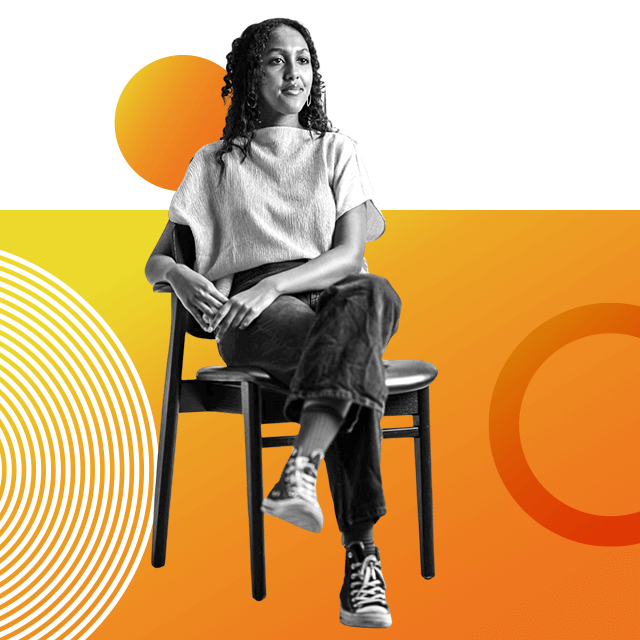
Sara Berkai, UK/Eritrea
Designer of DIY science kits
An Eritrean born in Sudan and raised in London, Sara Berkai was the first in her family to attend university, where she studied child development.
She is the founder of Ambessa Play, a social enterprise that designs DIY educational kits for children, and encourages them to participate in toy design.
Berkai’s work offers out-of-school children in various countries an opportunity to access an education through play. She came up with the concept while teaching science, technology, engineering and maths (Stem) workshops to displaced children in Ethiopia and Eritrea in 2019.
Her innovative ideas have been recognised by her inclusion on the Forbes 30 Under 30 list for social impact, among other accolades.
Resilience is optimism in practice – a steadfast commitment to a better future, rooted in love. – Sara Berkai

Rosa Vásquez Espinoza, Peru
Chemical biologist
Inspired by her grandmother’s wisdom as a healer, scientist Rosa Vásquez Espinoza has spent her career combining cutting-edge science and traditional knowledge to protect biodiversity in the Peruvian Amazon.
As the founder of Amazon Research International, she works with indigenous communities to explore the jungle’s untapped biodiversity.
Often travelling to remote ecosystems on the planet, Espinoza’s work includes discovering new bacteria in the Amazon’s legendary Boiling River, and leading the first chemical analysis of stingless bees and medicinal honey in Peru.
She is also an international ambassador of the Ashaninka people, one of the largest indigenous groups in South America.

Gabriela Salas Cabrera, Mexico
Programmer and data scientist
Her mother tongue, Náhuatl, was not available on Google’s widely used translation platform, until Gabriela Salas Cabrera got involved.
The engineer has collaborated with the tech giant on linguistics projects to integrate this and other indigenous languages of Mexico into Google Translate. The Náhuatl translator has already been released to the public earlier this year.
Salas’s work harnesses the power of artificial intelligence (AI) to amplify under-represented languages, as well as to boost the presence of indigenous women in the tech industry.
She specialises in object-oriented programming and AI, and is studying data science at Universidad Politécnica, in Madrid, Spain.
Female resilience is the flame that never dies, turning pain into purpose and lighting the way for those who follow. – Gabriela Salas Cabrera
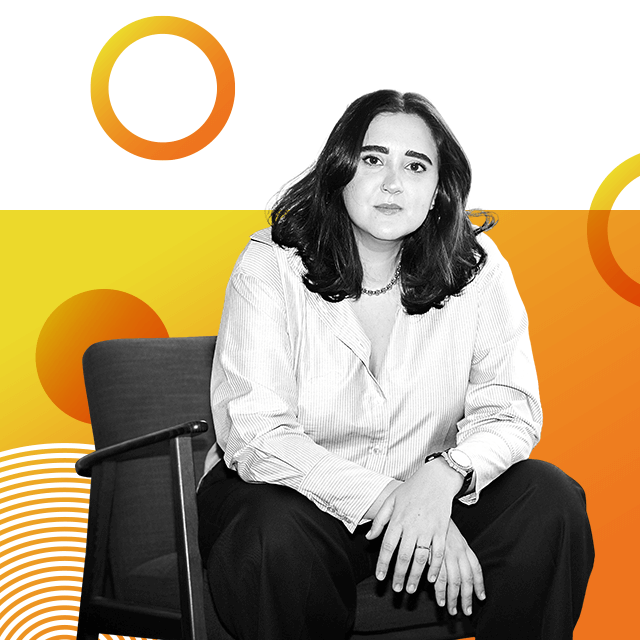
Nour Emam, Egypt
Fem-tech entrepreneur
Sexual health educator Nour Emam focuses on topics like menstrual hygiene, reproductive health and sexual awareness, subjects which are often considered taboo in the Middle East and North Africa region.
Emam is the co-founder and CEO of Motherbeing, a fem-tech (female technology) company that provides hybrid services through a clinic in Cairo and a digital platform, with the ambition to improve women’s access to healthcare through technology.
She aims to empower women with evidence-based knowledge about their bodies, while facilitating access to reliable information on contraception and helping them navigate sensitive issues without fear of shame.
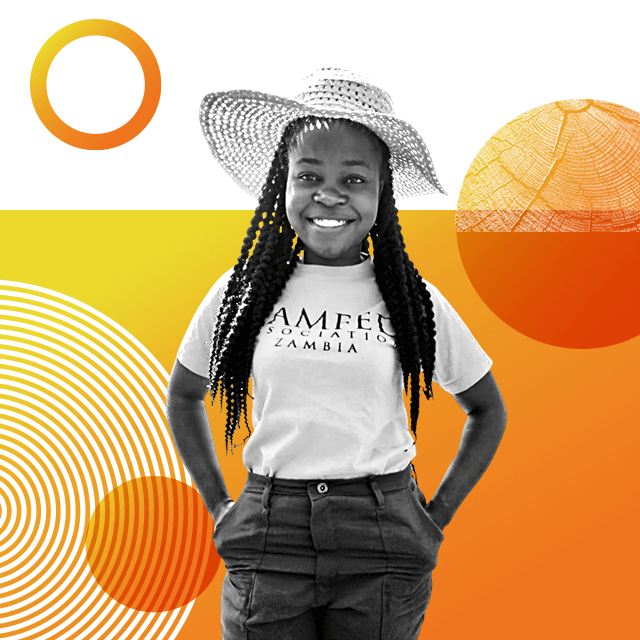
Naomi Chanda, Zambia
Farmer and trainer
As an agriculture guide at a teaching farm, Naomi Chanda is on a mission to get her community to work using methods that respect and preserve the land.
She focuses on “climate-smart” skills – like drip irrigation which uses less water, or short-cycle crops – putting women at the heart of solutions for climate change.
With girls’ education NGO Camfed, Chanda helps teach some 150 young women how to adapt farming techniques and make them resilient in the face of the climate crisis in Zambia’s far north-east, where prolonged droughts and dramatic seasonal changes have had a devastating impact on smallholder farmers.
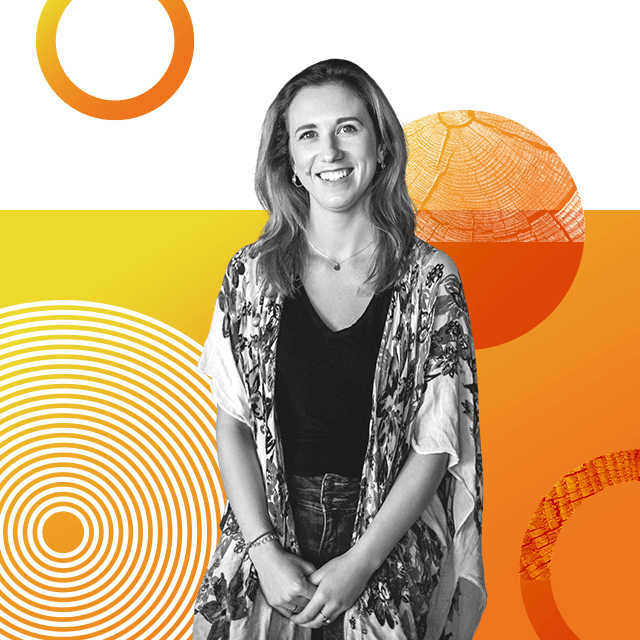
Sasha Luccioni, Canada
Computer scientist
In a world adapting to the fast-paced development of artificial intelligence (AI), the industry’s carbon footprint can often be overlooked.
Leading AI scientist Sasha Luccioni has helped create a tool so that developers can quantify their carbon emissions when they run code, which has been downloaded more than 1.3m times.
Luccioni is the climate lead for Hugging Face, a global start-up that works with open source AI models and wants to “democratise good machine learning”.
Her focus is on improving the sustainability of AI, and she is aiming to develop an “energy star rating system” that AI start-ups can use to compare their climate impact.
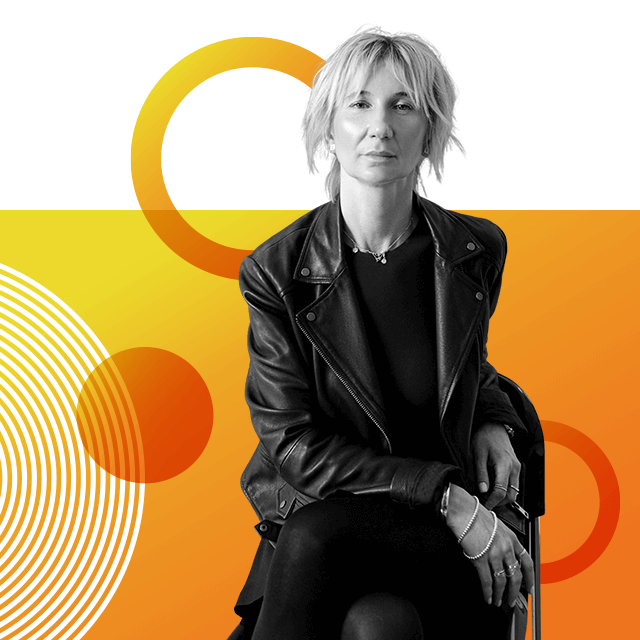
Olga Rudnieva, Ukraine
Founder, Superhumans Centre
Following Russia’s invasion of Ukraine, Olga Rudnieva felt she had to do something to help those wounded in the conflict.
People who had lost their limbs on the battlefield were seen as victims by many, but to Rudnieva they were “superhumans” who deserved all the help she could provide.
She set up the Superhumans trauma centre in Lviv, which she runs as CEO alongside a team of specialists. The centre provides prosthetic limbs to patients and has recently launched a rehabilitation centre.
More than 1,000 people have benefitted from their services during the first two years of operation.
Resilience is to wake up morning after morning to air sirens and keep fighting for your country. It’s rediscovering your ‘what for?’ instead of being stuck at ‘why me?’ It’s finding ways to do more, having less every day. – Olga Rudnieva
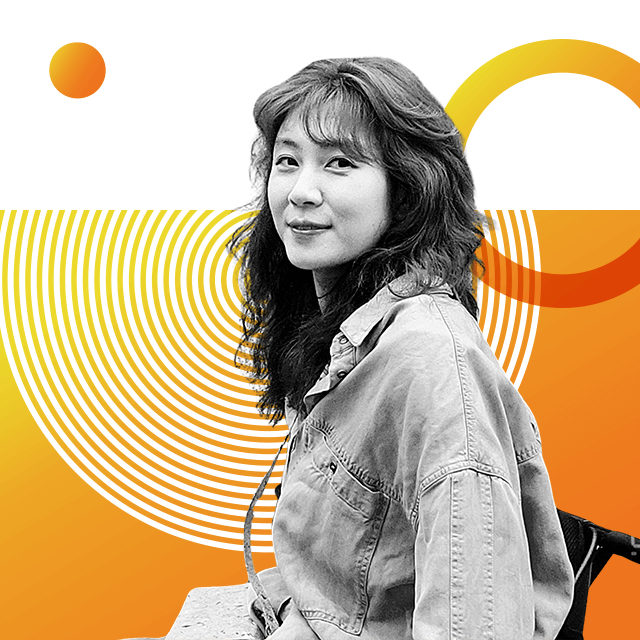
Subin Park, South Korea
Founder, Stair Crusher Club
When wheelchair user Subin Park found that many places she wanted to go in Seoul were inaccessible, she set about using her skills as a former IT project manager to highlight the issue.
Park is the co-founder of the Stair Crusher Club, a non-profit project that collects information on wheelchair unfriendly routes and places with no step-free access in South Korea.
The project aims to create an accessibility map for their users.
So far over 2,000 citizens have contributed to their database through Stair Crusher Club events and 14,000 locations across the country have been vetted for accessibility.
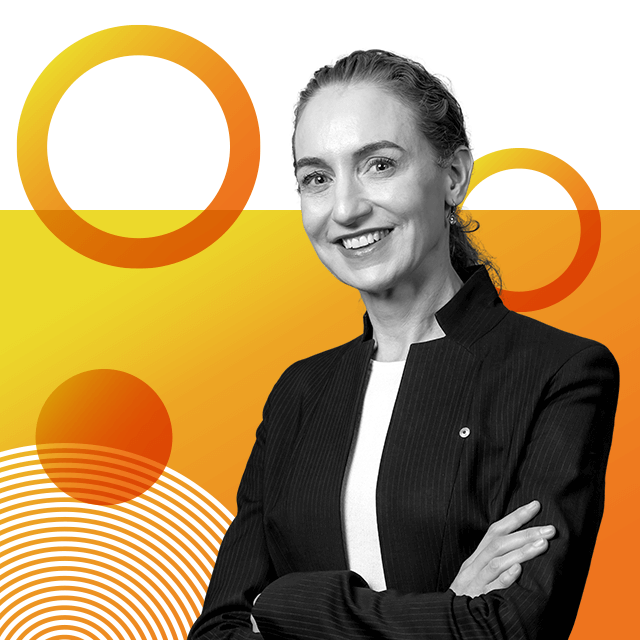
Georgina Long, Australia
Medical oncologist
Through targeted therapies and immuno-oncology, Georgina Long wants to see a world without cancer deaths.
As co-director of the Melanoma Institute Australia, Long rose to prominence in 2024 after she co-designed a world-first treatment that helped her colleague and friend, Richard Scolyer, remain cancer free, after he had developed a particularly aggressive type of brain cancer.
Long and her team – including the patient himself – discovered that immunotherapy worked better when a combination of drugs is used before surgery to remove the tumour.
Their cutting-edge work drew from many years of research on melanoma, credited with having saved the lives of thousands of patients with skin cancer diagnoses.
The leaders of the future should champion empathy and shared humanity, empowering people to challenge outdated systems and pursue innovative solutions to problems. – Georgina Long
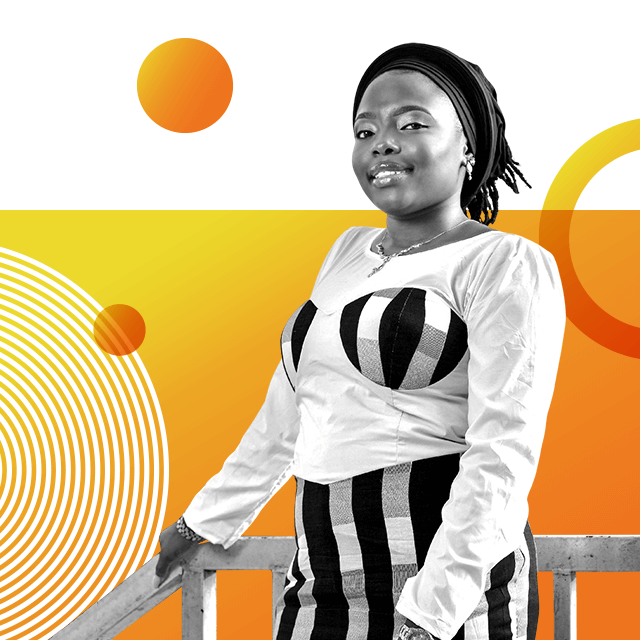
Kauna Malgwi, Nigeria
Union leader for content moderators
Kauna Malgwi is a vocal activist for workers’ rights in the tech and artificial intelligence (AI) industry. The clinical psychologist leads the Content Moderators Union in Nigeria and raises awareness about all the invisible labour that goes into training AI systems.
In her former role as an outsourced content moderator for Facebook, Malgwi says she was exposed to videos of rape, suicide, and child abuse, which led to insomnia and paranoia.
She is one of 184 former moderators who have sued Facebook’s parent company Meta, as well as the company’s subcontractors in Kenya, for unlawful termination, after a whistleblower called out poor working conditions. Meta and the subcontractors have defended their employment practices.
She has testified at the European Parliament in support of content moderators’ rights.
Women can challenge and change the realities of our fractured world by bringing a holistic perspective that values both technological progress and mental wellbeing. – Kauna Malgwi
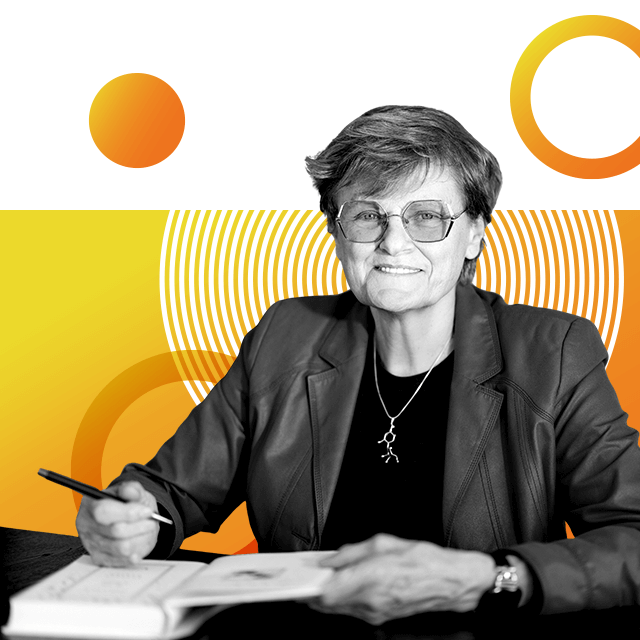
Katalin Karikó, Hungary
Biochemist and Nobel laureate
Hungarian biochemist Katalin Karikó’s acclaimed research on modified messenger RNA (mRNA) was used to create Covid-19 vaccines by BioNTech/Pfizer and Moderna.
It won her a Nobel Prize (shared with her colleague Drew Weissman) for her contribution to the “unprecedented rate of vaccine development during one of the greatest threats to human health in modern times”.
mRNA, the material responsible for translating our DNA into proteins, is extremely fragile and difficult to work with, but Karikó was convinced it could play a major role in medicine.
The technology was experimental before the pandemic, but has now been given to millions of people around the world to protect them against serious Covid-19.
Work towards your goals by always focusing on what you can do and not what others should do. If you fail, learn from it. Stand up and move on with the same enthusiasm. – Katalin Karikó

Sneha Revanur, US
AI expert
At just 20 years old, Sneha Revanur is already ahead of the game. She is the founder of Encode Justice, a global youth movement for safe, equitable artificial intelligence (AI) with more than 1,300 members across 30 countries.
Revanur’s work seeks to mitigate the threats posed by emerging technology and include young people in critical conversations.
She is a student at Stanford University and a summer fellow at the Center for AI and Digital Policy.
She recently became the youngest individual on TIME magazine’s inaugural list of the 100 most influential voices in AI.
We have the opportunity to get ahead of AI’s risks before they eclipse its revolutionary potential. To me, this is resilience: rising above the past to reimagine the future. – Sneha Revanur
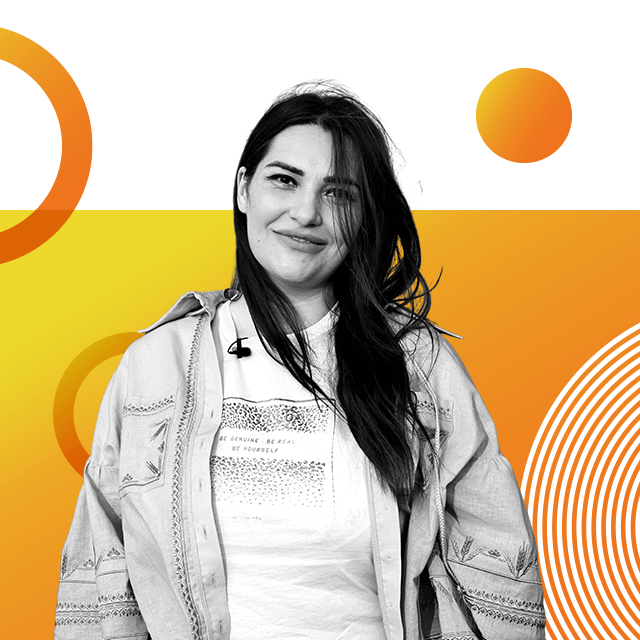
Olga Olefirenko, Ukraine
Farmer
When her father died in 2015, Olga Olefirenko wanted to fulfil his dream of setting up a farm. After buying livestock, she began working but soon struggled financially and had to sell all the animals.
But she did not want to abandon the aspirations of her father – who was killed on the front line in Donbass while on duty as the commander for the navy’s special target forces.
Last year she put together a business plan to bid for funding from the Ukrainian Veterans Fund and was successful.
Olefirenko began running her farm again, with a focus on modernisation, the use of new farming technologies, and the creation of jobs for the local community, where she is seen as an inspiration for her initiative and leadership.
[BBC]
Features
Time of hope and a promise to keep
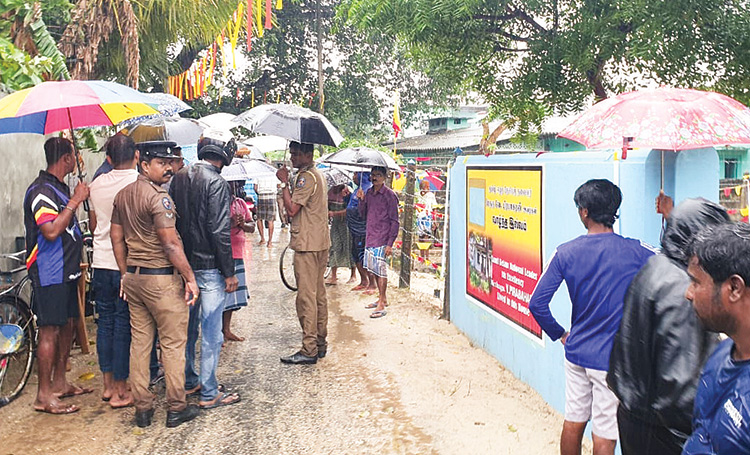
by Jehan Perera
The recent political transition in Sri Lanka, following the presidential and parliamentary elections of September and November, offers a pivotal opportunity to address entrenched issues of exclusion. In his inaugural speech at the 10th Parliament, President Anura Kumara Dissanayake emphasised his commitment to preventing racism and religious extremism in Sri Lanka. He asserted that his government would not allow racist politics to reemerge and pledged to establish a democratic state free from fear and suspicion. The president highlighted the importance of the rule of law, ensuring that no individual or politician is above it. His address also included a promise to investigate controversial crimes, deliver justice to victims, and rebuild public trust in the legal system.
President Dissanayake has exceeded expectations as the public face of the NPP government. He is the government’s master communicator neither losing sight of his origins among the people as seen in his attire and demeanour, but also in his policies. The president’s assurance that he would not permit racism and ethnic hatred to get root again in the country is another testament to the value system that he grew up with. His origins in the farming zones of the North Central province, once the heartland of the Sinhala Buddhist kingdoms, and his personal struggles with poverty and overcoming it with the support of the social welfare system set in place by the early governments of Sri Lanka, make him the quintessential Sri Lankan success story.
Many decades ago, another leader of Sri Lanka cited the Buddhist teaching that “hatred ceases not by hatred but by love (non-hatred)”, a phrase that was repeated by the current Japanese ambassador in his welcome speech at his official residence. Former President J R Jayewardene spoke these words to safeguard Japan from being subjected to reparations after it was defeated in the World War II. The question is the extent to which words are made flesh and become manifest in the world. Unfortunately, President Jayewardene was unable to manifest the words he spoke to the world when it came to his own country. When faced with intractable foes in the JVP and LTTE insurrections, his government countered the ferocious violence of the rebel groups with the ferocious violence of the state.
COMMEMORATING DEAD
So far it appears that President Anura Kumara Dissanayake is living and acting out the values that he speaks. It has been only two months since he won the presidency, so it may be too early to tell for certain, but the signs of sincerity are manifest in his words and deeds and the manner in which he seeks to uphold the national interest. This it seen in the way he has led the Marxist-JVP core of the NPP government into sticking by pragmatic economic policies agreed to by the previous government with the IMF, in which the masses of people have to bear the burden, but to which there seems to be no viable alternative at the present time. The president and his government are being criticised by those who would probably act no differently if they had been in power, except that they would be trying to take their own cut, for which good reason the people rejected them.
The government’s approach to the controversy about the memorialisation of the departed persons known as Maveerar (Heroes) Day was also an instance where the president and his government stood by their values and gave the Tamil people who wished to commemorate their fallen sons and daughters in the three decade long war, the opportunity to do so peacefully and as a community. This has in fact been endorsed in law by the Office for Reparations Act No 34 of 2018 which allows for individual and group remembrance (Section 27). The JVP has long commemorated their own dead, their heroes, who fought for social change, for curd to the villages and not only to Colombo, and for revolution. The government was consistent in accepting that the Tamil people had the same right to commemorate those who lost their lives in the struggle for their rights.
A news report stated “T. Sellathurai and his wife turned up at the event in Kodikkamam, Jaffna, to commemorate the deaths of two of their sons, whose remains were buried in the one-time cemetery, now a military base. The symbolic event was organised on a private plot of land opposite the military base. “We just want to remember our sons, and we came with their favourite food for prayers.” On this occasion, the government’s position was that the fallen people could be commemorated, but not the organisation they belonged to. Another news report stated that “A 29-year-old youth from Inuvil, Jaffna was taken into police custody under the Prevention of Terrorism Act this week. The youth was arrested by the Terrorist Investigation Division (TID) officers in connection with the messages he had shared on social media during the Maveerar Day events this week.” Maybe in the future, the police will not intervene to cover the pictures of the LTTE leaders, just as much as they do not cover the pictures of the JVP leaders.
There has been strong criticism by opposition politicians about the government’s permission to hold the LTTE commemorations. The power of ethnic nationalism to revive cannot be underestimated.
The permission given by the government to the commemoration ceremonies in the north and east of the country is, however, not a new phenomenon. Similar permission was also given by the previous governments in which former President Ranil Wickremesinghe played a lead role, and for which he needs to be appreciated for standing for a non-racist Sri Lanka. The former president has long represented the cosmopolitan, multi-ethnic and plural character of Sri Lankan society, though it has periodically got overwhelmed by competing nationalisms that become incredibly powerful when backed by ethnic nationalist government leaders. The JVP has traditionally been closer to this latter thinking, which is why all the more credit should go to President Dissanayake for the positive change today.
MUSLIM EXCLUSION
In keeping with its pledge to be non-racist in governance, the NPP government has been making a strenuous effort to rectify its failure to include a Muslim in its first cabinet of ministers. This is the first time that the Muslim community finds itself excluded from being part of decision making at the highest level of government. Although the government has attempted to rectify the situation by appointing a Muslim as the deputy speaker and another as a deputy minister, the sense of exclusion continues to trouble the Muslim community, especially as a significant number of them voted for the government.
However, it also needs to be noted that in the past, even when governments had multiple Muslim ministers, this did not prevent significant injustices taking place against the Muslim community. In particular, after the end of the three-decade long war, in which the Tamil community was the main protagonist at the receiving end, the Muslim community became the main target of nationalist groups. There were terrible riots against the Muslims, where their properties were looted and destroyed, and some were killed, while the perpetrators were permitted to go on the rampage. The presence of multiple Muslim ministers in the cabinet did not stop this pillage.
Much before the country got into a debt trap, even before it became a country of widespread corruption, there was an ethnic divide that corroded the spirit of unity in the country. At the very dawn of Independence, the Tamils of recent Indian origin (Malaiyaha Tamils) were denied their citizenship and excluded from the polity. This was followed by the denial of equal language rights to all the Tamil-speaking peoples, through the policy of Sinhala-only, which led to the first mass migration of Sri Lankan citizens out of the country when the most educated community at that time, the Burgher community, emigrated to foreign lands. Today, people from the four corners of the country and the middle as well, have voted for change, unity and a new start. This is the unique opportunity that the NPP government has and the promise it must keep.
Features
A few thoughts on English language teaching in the era of Generative AI

by Maduranga Kalugampitiya
 Generative Artificial Intelligence, or GenAI, has been a hot topic, mainly in academic circles, for the past few years, and one of the fields in which GenAI has made ripples is English Language Teaching (ELT). While some have embraced GenAI as a resourceful tool, which could be used to improve the ELT situation, some others have expressed concern regarding the possible negative impact of GenAI in the field. Research conferences are being organized where the intervention of GenAI in ELT is being discussed from multiple angles. Research publications are emerging on the topic turning the field into one of academic enquiry.
Generative Artificial Intelligence, or GenAI, has been a hot topic, mainly in academic circles, for the past few years, and one of the fields in which GenAI has made ripples is English Language Teaching (ELT). While some have embraced GenAI as a resourceful tool, which could be used to improve the ELT situation, some others have expressed concern regarding the possible negative impact of GenAI in the field. Research conferences are being organized where the intervention of GenAI in ELT is being discussed from multiple angles. Research publications are emerging on the topic turning the field into one of academic enquiry.
Key Contextual Factors
In my view, there are three contextual factors, which we need to take into consideration in understanding the connection between GenAI and ELT, especially in the Sri Lankan context. The first factor concerns itself with the socioeconomic context in which access to GenAI needs to be understood. GenAI is often being talked about as a tool that is freely available for whoever wants to use it; however, the limitations with regard to access to technological resources would show that GenAI is not at everyone’s fingertips. In such a context, the claim that GenAI is a tool that is freely available itself is a classist one.
The second factor concerns itself with the general attitude towards English in the Sri Lankan context. Much has been said about the ambivalent relationship that many maintain with the English language. Although English does not enjoy the official language status in the Constitution, it is arguably the most powerful language in the country. It is widely seen as the language that can get you opportunities in life. Nevertheless, English, at the same time, is being seen as a threat, mainly for the cultural and socioeconomic baggage that it carries around with it. The class undertones of the language continue to repel large segments of learners from the language. Such ground level realities have made English a politically and ideologically charged language, converting ELT into a tension-filled exercise.
The third factor is about the form of English that is used in the country. We generally think of languages as homogeneous entities; however, the reality is far from that. Variation is a core part of every language, and it is particularly the case with languages like English, which have wide international presence. Much has been said about different forms or varieties of English being used in different parts of the world and also about them being legitimate forms of English. Similarly, in the Sri Lankan context, we speak of Sri Lankan English. The attitudes towards Sri Lankan English range from seeing it as a substandard, broken form of English to conceptualizing it as a fully legitimate form of English that is most suited to engaging with the realities that are Sri Lankan in nature. Irrespective of the attitude that one may maintain towards the kind of English that is associated with Sri Lanka, the fact that what is taught and used predominantly in the local context is a form that is characteristically Sri Lankan. It has meaning making processes that are specific to the local context. Whether GenAI is sensitive to such context-specific characteristics of English is a question.
General Perception
There is a widespread perception that GenAI is going to render English language teachers as experts on the language redundant, at least for two reasons. Firstly, the learner could go directly to GenAI and get their doubts clarified. Generally speaking, clarifying doubts about the language has so far been the duty of the English language teacher, but now that role is being taken over by GenAI. Secondly, GenAI can be used by the learner to get their language related tasks, especially in the area of writing, done. They can get their essays, responses, reports, and even poems and short stories written by GenAI. The sense of autonomy that GenAI as a tool affords the learner arguably raises questions regarding the relevance of the role played by the teacher.
Current Theory of Language and Language Teaching
I would argue that we share this perception because we subscribe to a certain theory of language and a certain theory of language teaching. We tend to think of language primarily as a structured object, or in other words, as an entity composed of a collection of sounds and vocabulary items that are held together by a set of rules. Phonology concerns itself with the rules that govern how the sounds of the language are formed. The physiology behind the production of individual sounds and how the sounds thus produced position themselves in relation to each other become the primary focus there. Then in morphology, we talk about the rules that govern the formation of words. The idea is that there is a structure for each and every word in the language and that there are rules that govern that structure. The study of the words in the language becomes a study of those structures. In syntax, we talk about the rules that govern how words are put into bigger constructs, such as phrases, clauses, and sentences. Again, the primary focus is on the rules and structures. According to this conception of language, it is the structuredness of the entity that defines its identity. That is why we see language primarily as a collection of sounds and vocabulary items that are held together by a set of rules.
When we subscribe to such a conception of language, language teaching becomes instilling those rules and structures in the mind of the learner. This explains why language teaching is so much about teaching the grammar of the language. From this point of view, the goal of language teaching is to produce someone who is skilled in managing the rules and structures of the language. Error correction is a big part of this type of approach to language teaching. Errors are violations of the rules that govern the structures of the language, and language teaching aims at minimizing such violations so that the structures can function smoothly. This is why language teaching has become primarily about instilling the correct rules pertaining to pronunciation, word formation, and the formation of sentences and rectifying any errors made in those areas.
Interestingly, this function of language teaching is increasingly being taken over by GenAI. The language teacher is in competition with GenAI to remain the authority on the structure of the language, and there are signs that the former may not be able to maintain their primacy for too long.
Need for Re-orientation
In my view, GenAI has brought us to a historical juncture where we have no choice but to reexamine the theory of language and language teaching that we subscribe to. I see this as a wonderful opportunity for language to distance itself from its position as a structured entity whose structuredness is seen as what defines its identity to a position where language is understand as a particular take on reality, a position that is at the heart of the theories of language proposed by many thinkers. This theory of language entails that different languages are different ways of thinking and talking about the world and our existence in it. There are thinkers who have pointed out that no two languages look at the world in the exact same way. In that sense, the different languages could be thought of primarily as voices.
This shift in the theory of language entails a shift in the theory of language teaching, too. In a context where a language is seen primarily as a voice, language teaching becomes an activity that facilitates the acquisition of that voice. When one learns a language what she acquires is the ability to think and talk about the world and existence in a novel way. This does not mean that teaching grammar and correcting errors are no longer part of language teaching. It means that language teaching will not be limited to those two activities. The proposed re-orientation is a move in the direction of critical pedagogy whose end goal is to empower the learner with a voice, which would enable her to negotiate her position in the broader web of power relations that she is part of.
(Maduranga Kalugampitiya is attached to the Department of English, University of Peradeniya)
Kuppi is a politics and pedagogy happening on the margins of the lecture hall that parodies, subverts, and simultaneously reaffirms social hierarchies
-

 Sports7 days ago
Sports7 days agoA lot at stake in Sri Lanka – South Africa Tests
-

 News5 days ago
News5 days agoDialog Smart Home Celebrates Continued Partnership as Gold Sponsor for Kadella 2024
-

 Editorial3 days ago
Editorial3 days agoGreed for diplomatic appointments
-
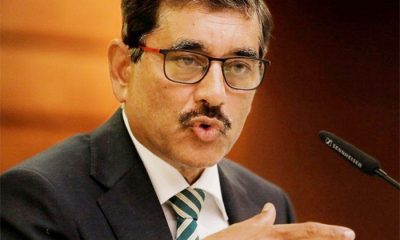
 Business6 days ago
Business6 days agoCurrent deflation situation would not adversely impact economy – CBSL Governor
-

 News6 days ago
News6 days agoFirst-ever floating solar photovoltaic power plants operational
-
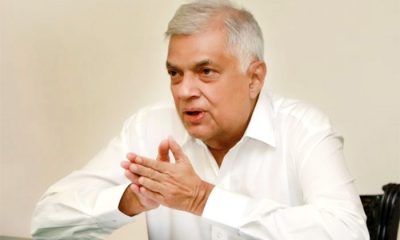
 News2 days ago
News2 days agoAKD gladdens Ranil’s heart
-

 News5 days ago
News5 days agoEx-Northern Governor: Deployments prerogative of armed forces
-

 Business2 days ago
Business2 days agoCentral Bank aware of upside and downside risks to its inflation projections












